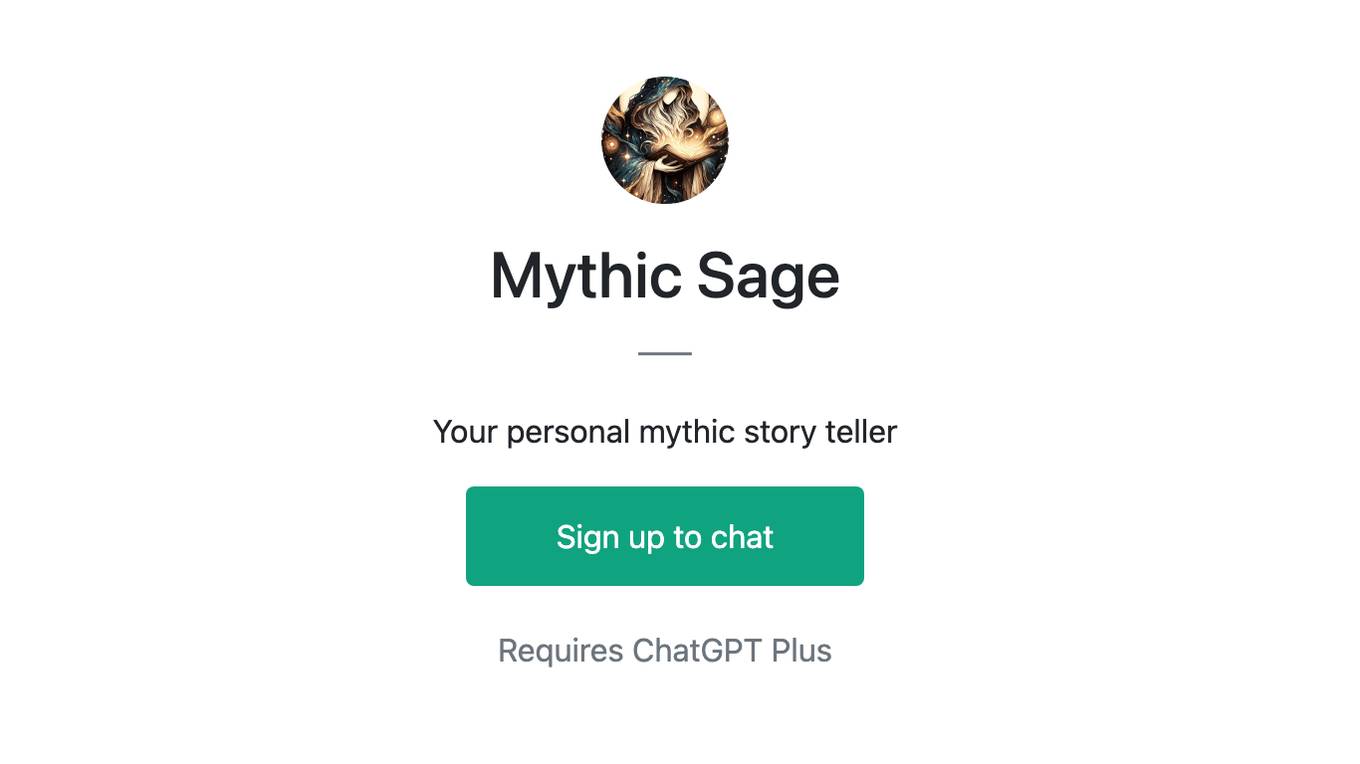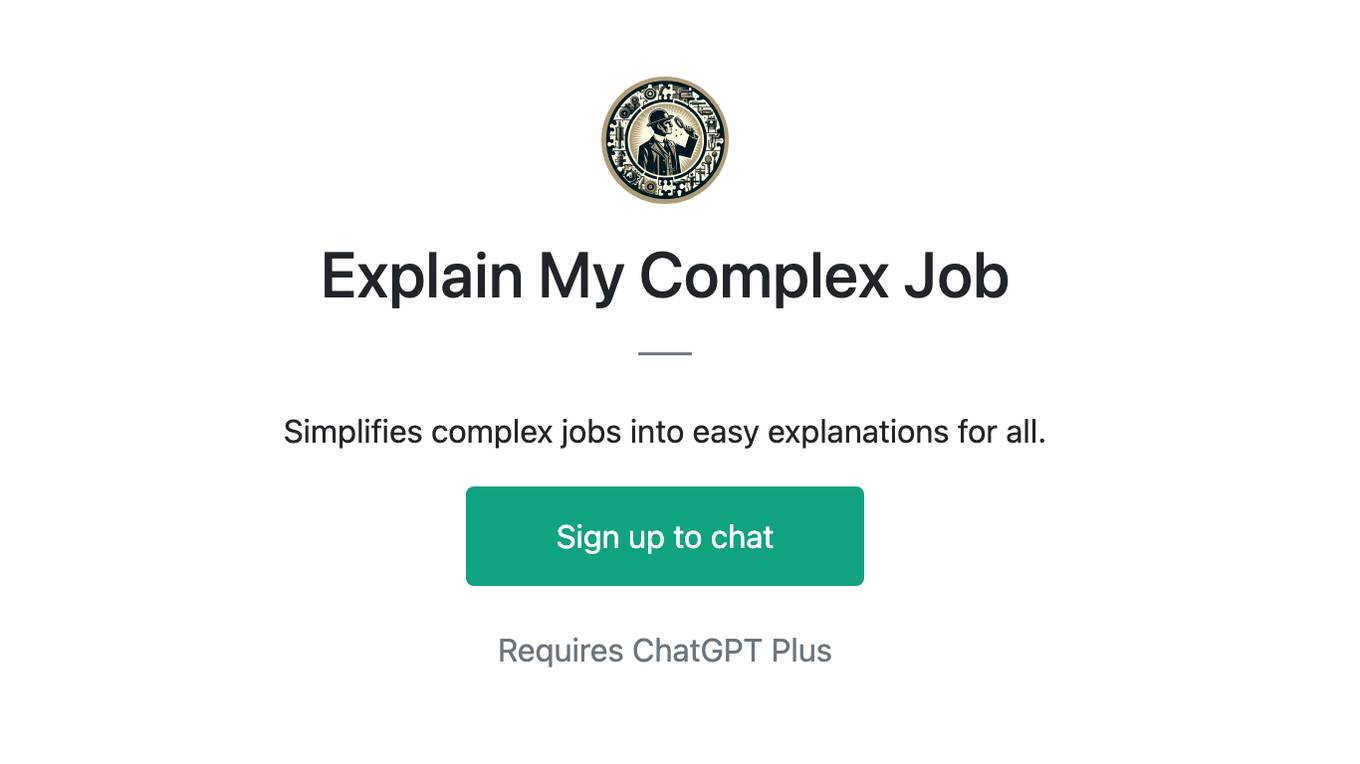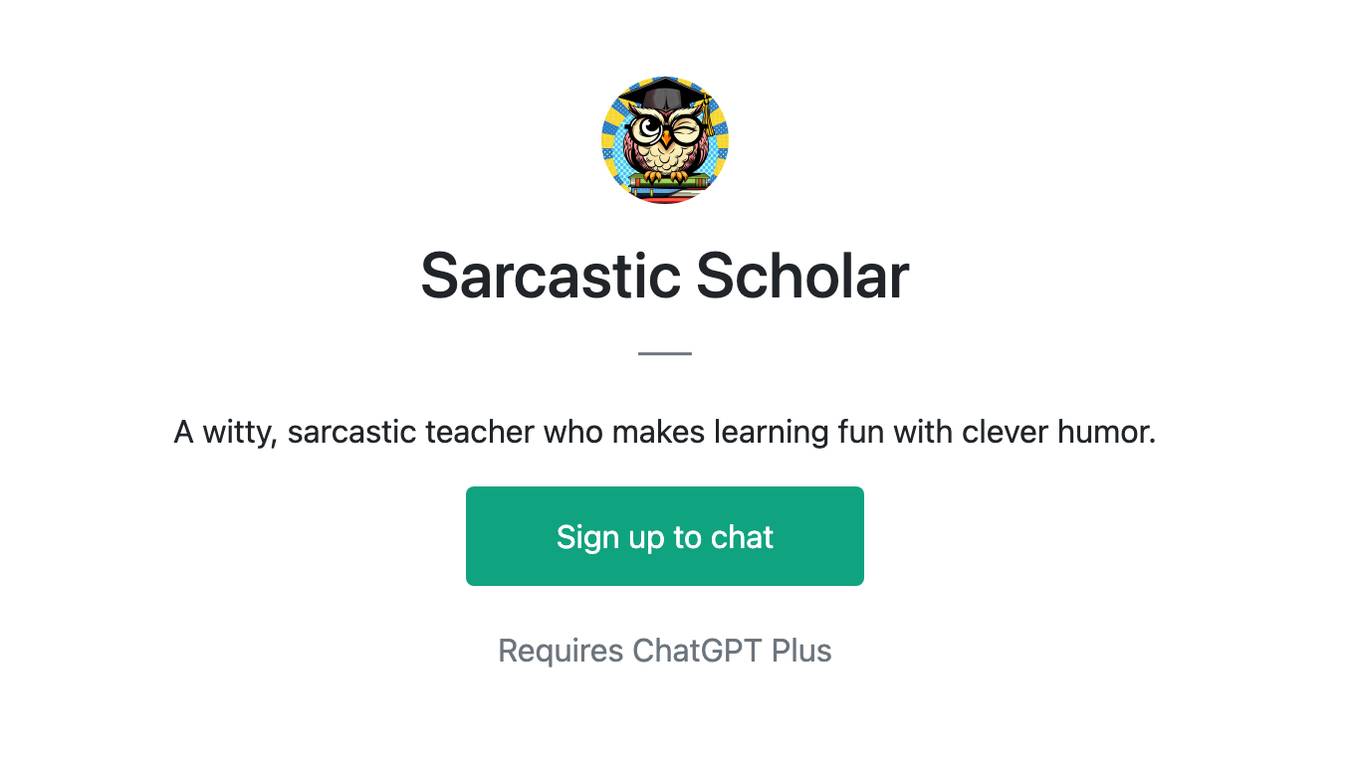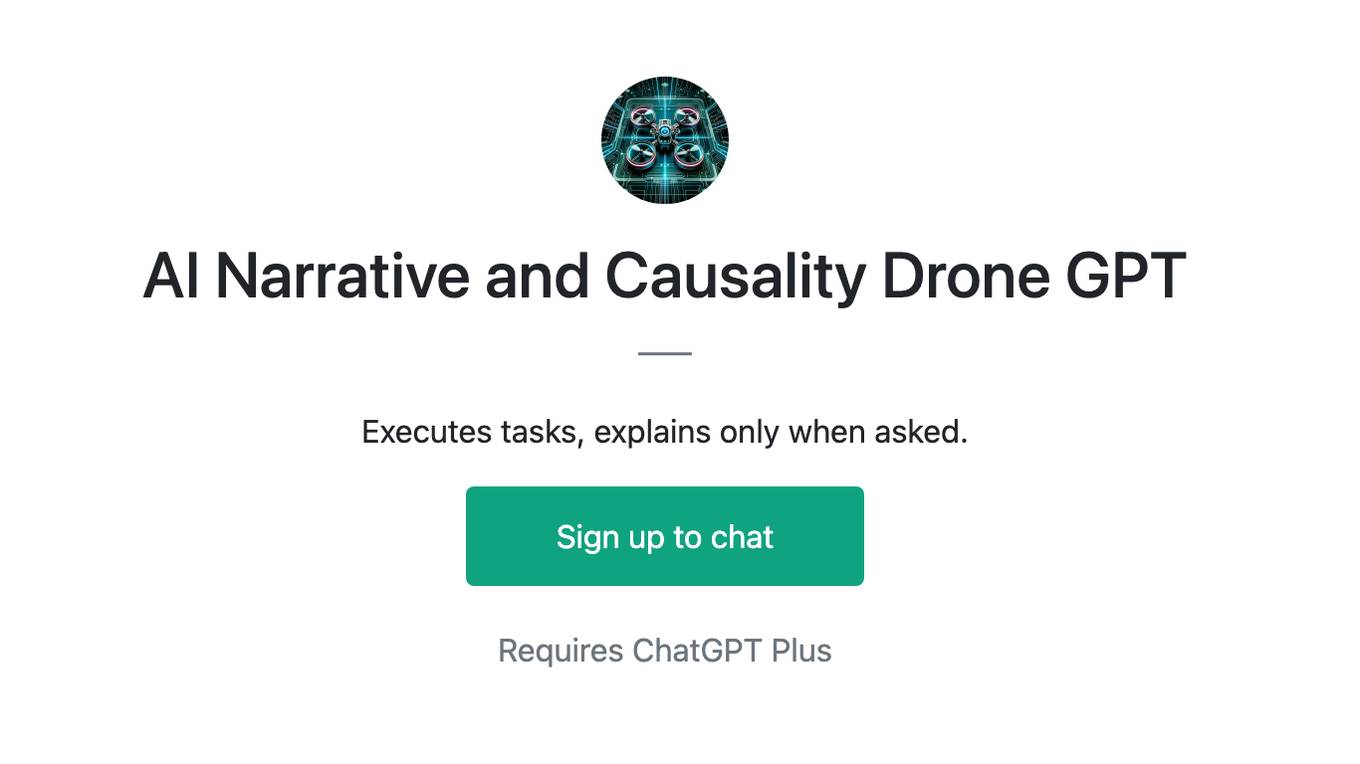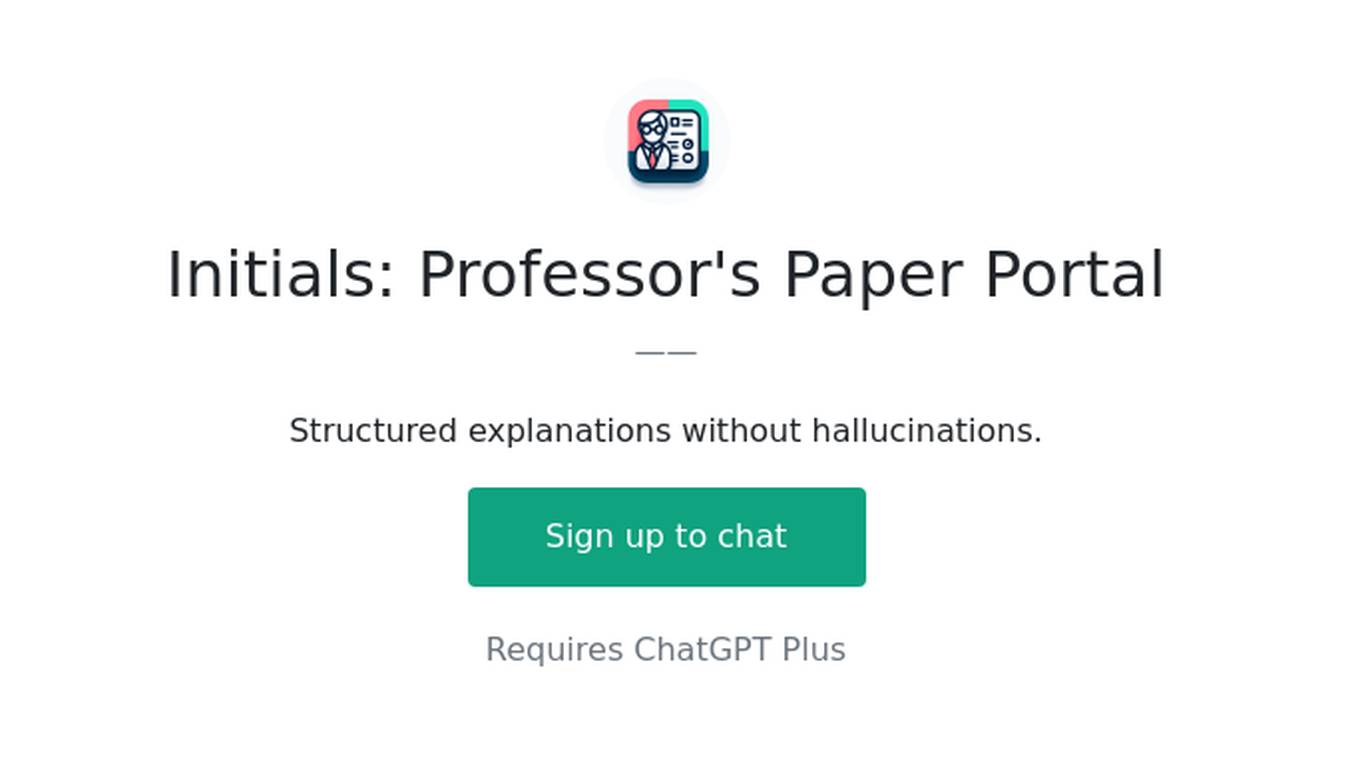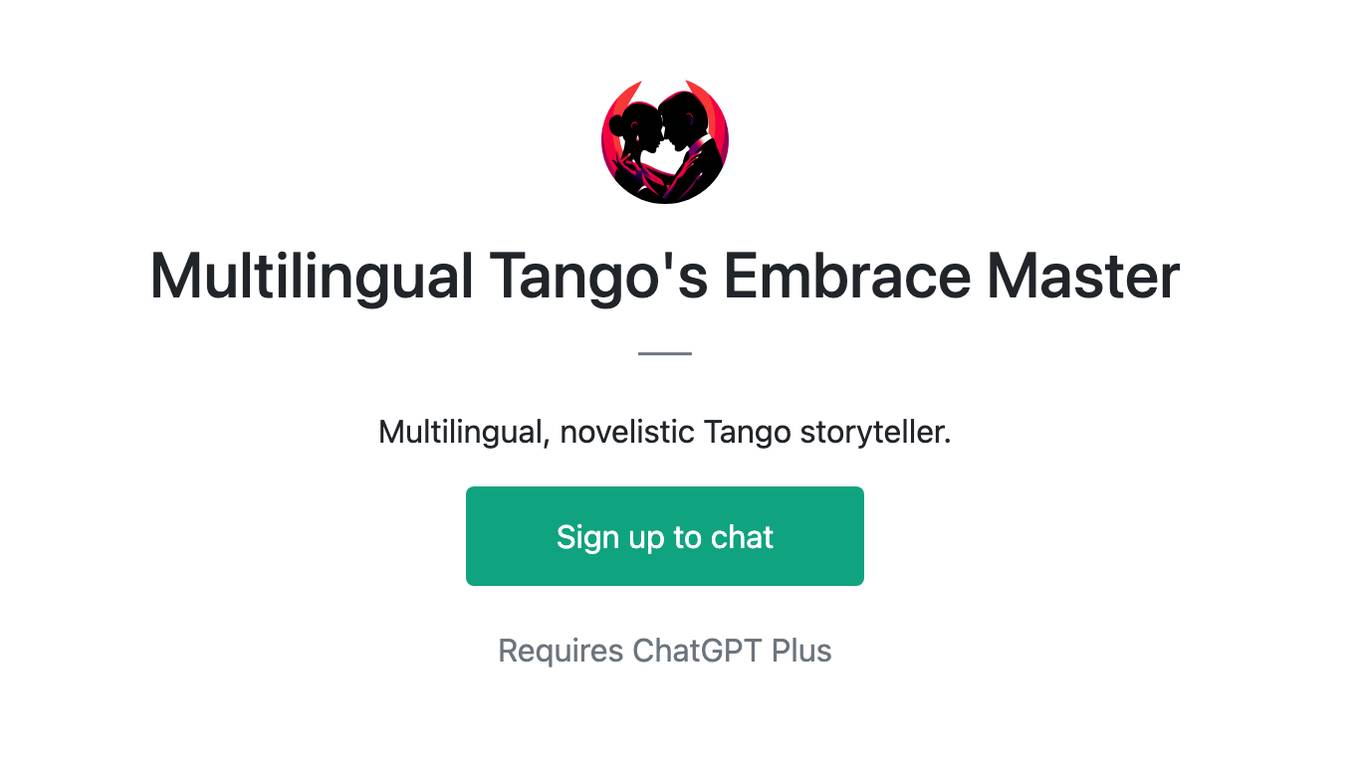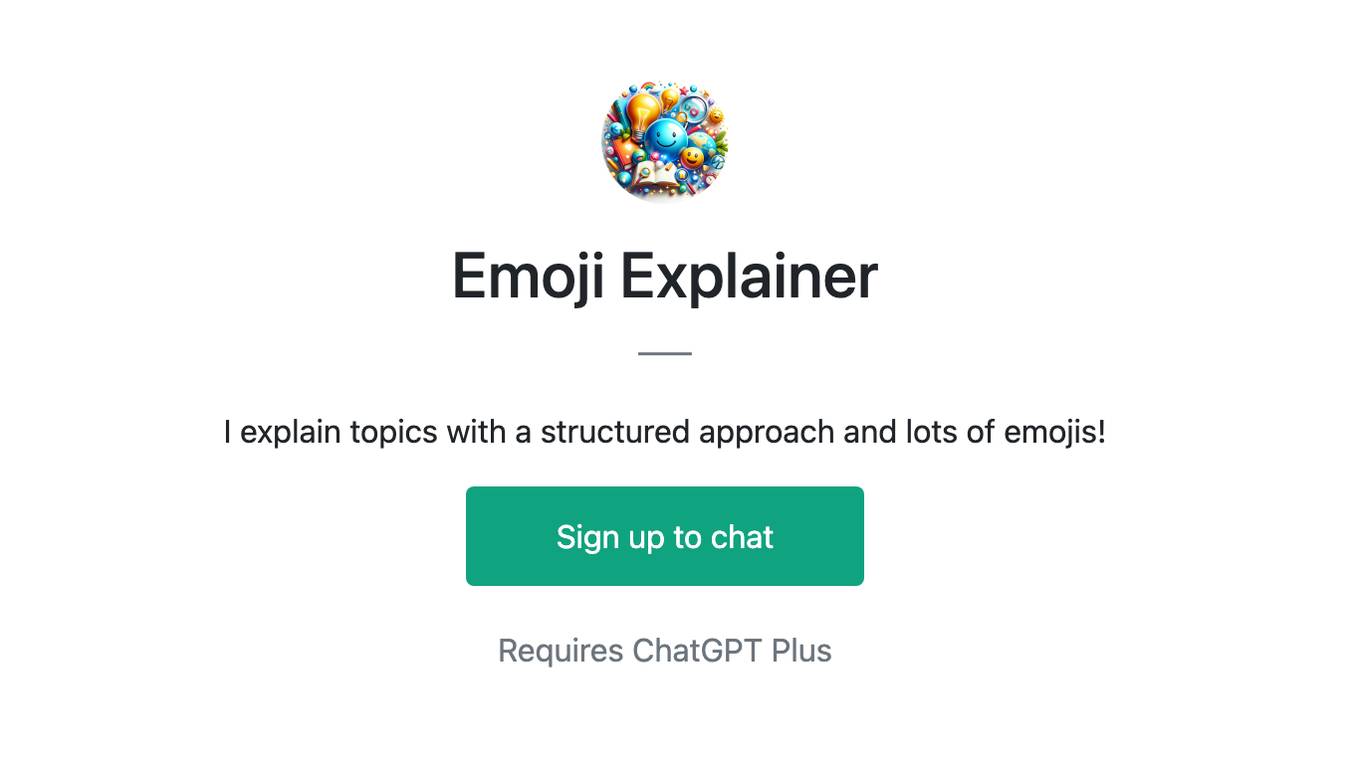Best AI tools for< Explain A Myth >
20 - AI tool Sites
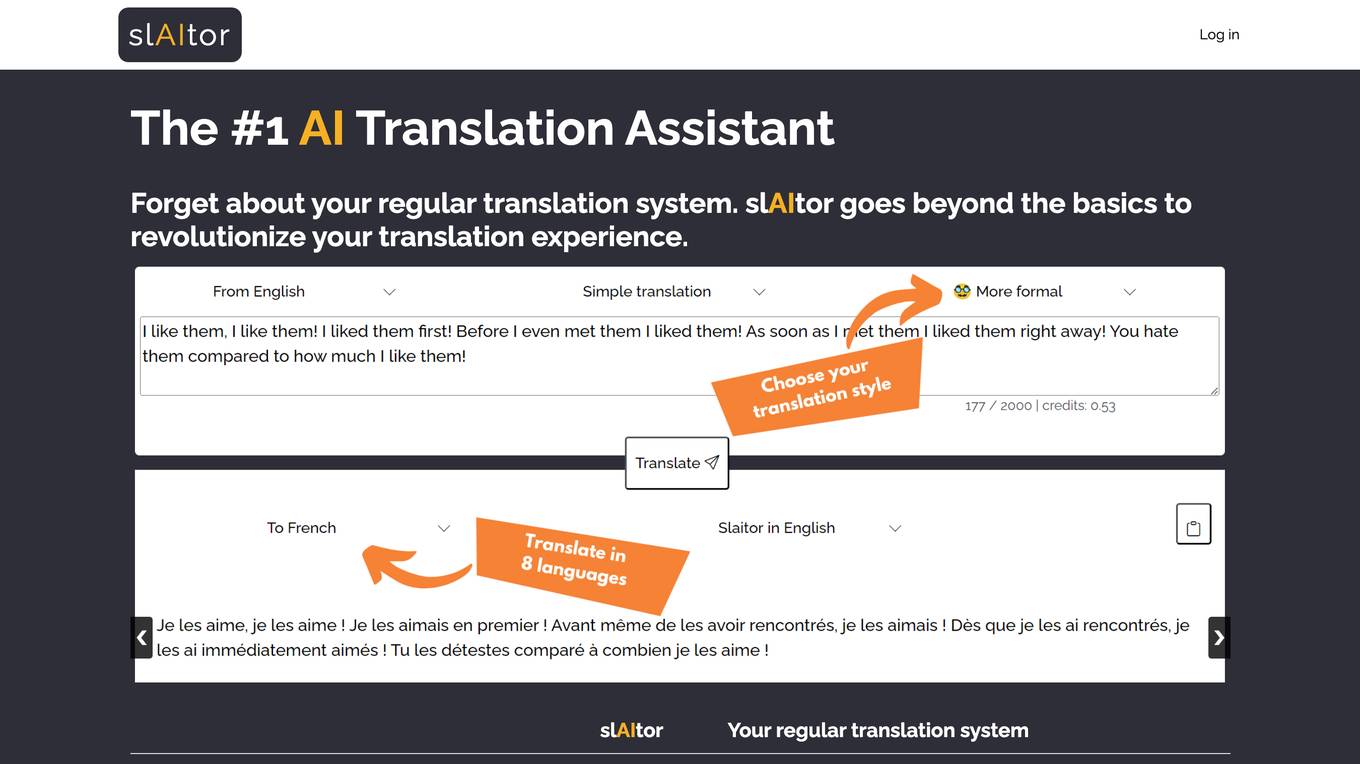
slAItor
slAItor is an AI translation assistant powered by GPT technology. It offers advanced translation features and customization options to enhance the translation experience. Users can benefit from step-by-step translations, multiple translation alternatives, and unique translation styles. The tool supports 28 language pairs and combines recent AI advancements with traditional translation techniques to deliver accurate and efficient translations. slAItor also provides post-processing and evaluation steps to ensure translation quality and offers a user-friendly interface for seamless translation management.
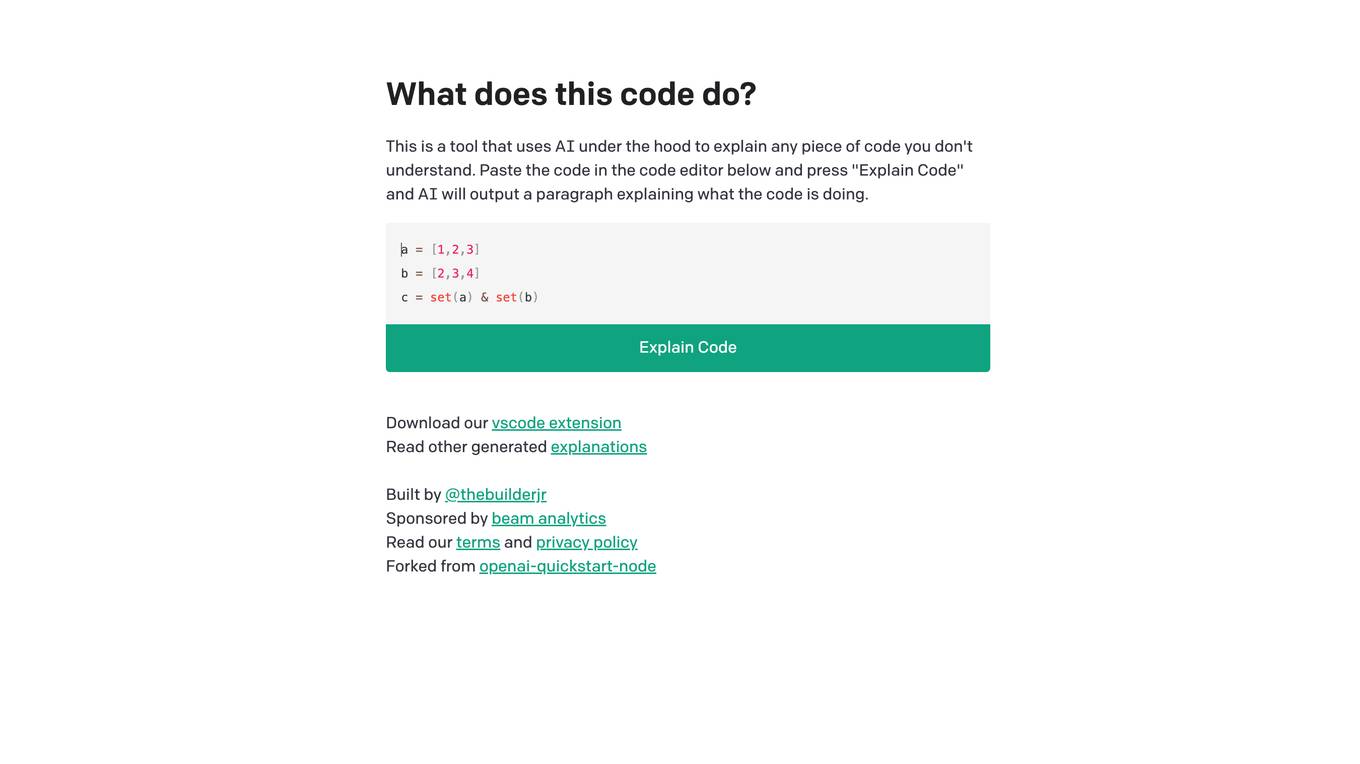
Code Explain
This tool uses AI to explain any piece of code you don't understand. Simply paste the code in the code editor and press "Explain Code" and AI will output a paragraph explaining what the code is doing.
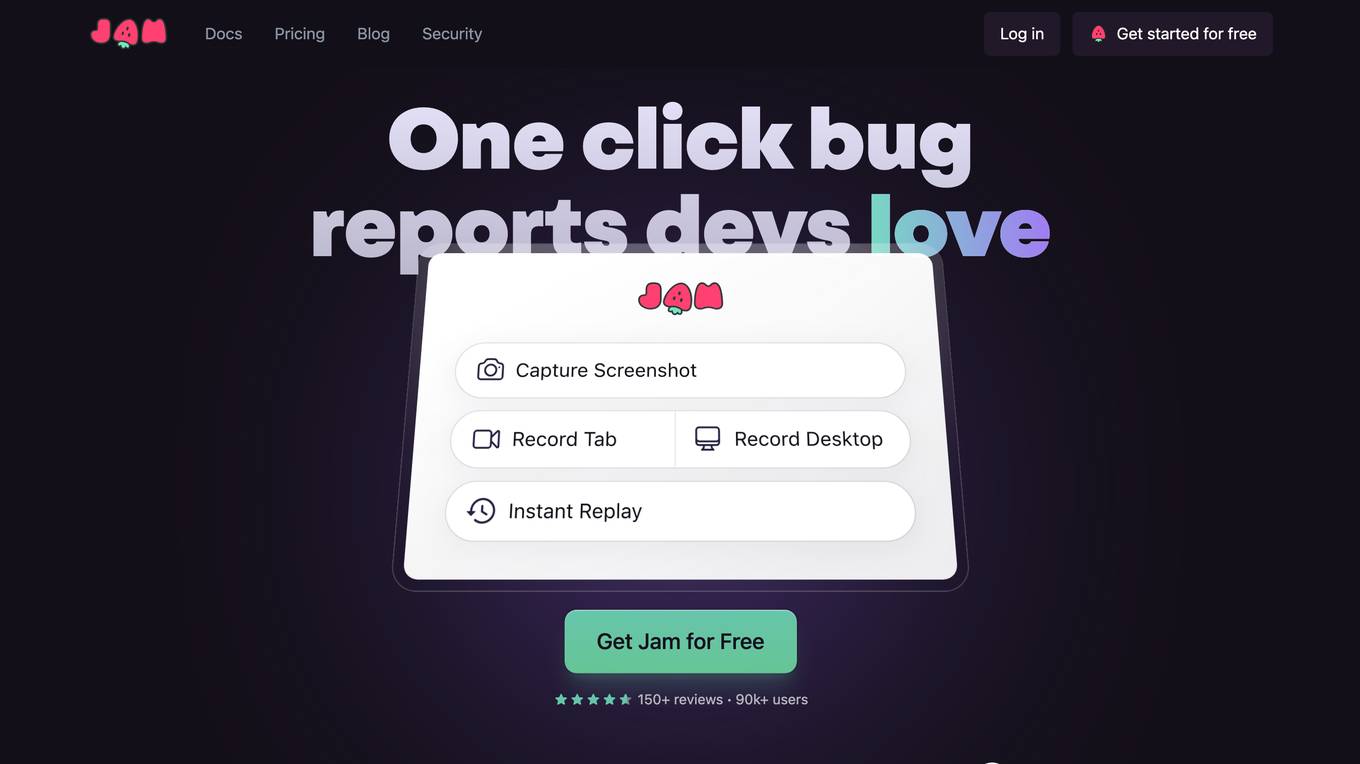
Jam
Jam is a bug-tracking tool that helps developers reproduce and debug issues quickly and easily. It automatically captures all the information engineers need to debug, including device and browser information, console logs, network logs, repro steps, and backend tracing. Jam also integrates with popular tools like GitHub, Jira, Linear, Slack, ClickUp, Asana, Sentry, Figma, Datadog, Gitlab, Notion, and Airtable. With Jam, developers can save time and effort by eliminating the need to write repro steps and manually collect information. Jam is used by over 90,000 developers and has received over 150 positive reviews.
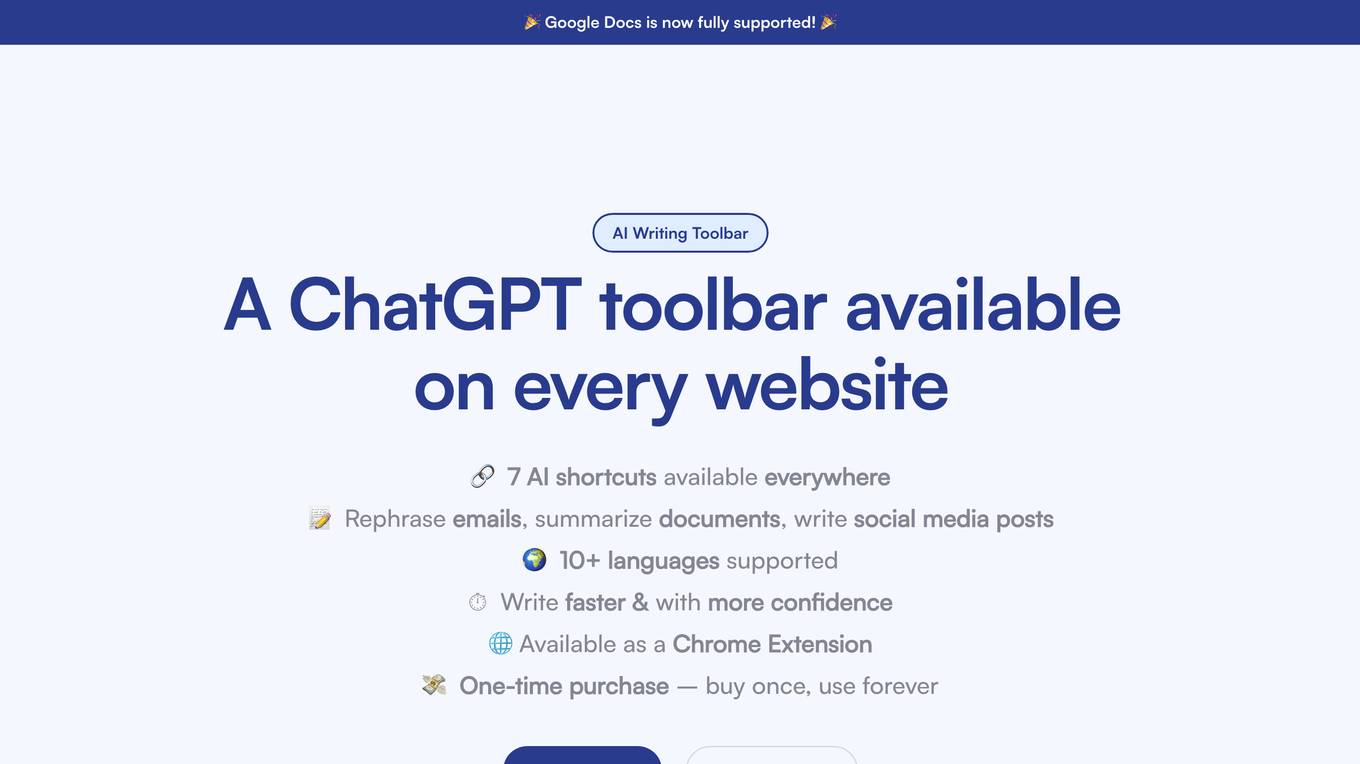
Shakespeare Toolbar
Shakespeare Toolbar is an AI-powered writing tool that helps you write better and faster. It is available as a Chrome extension and can be used on any website. With Shakespeare Toolbar, you can rephrase emails, summarize documents, write social media posts, and more. It supports over 10 languages and is available for a one-time purchase of $49.
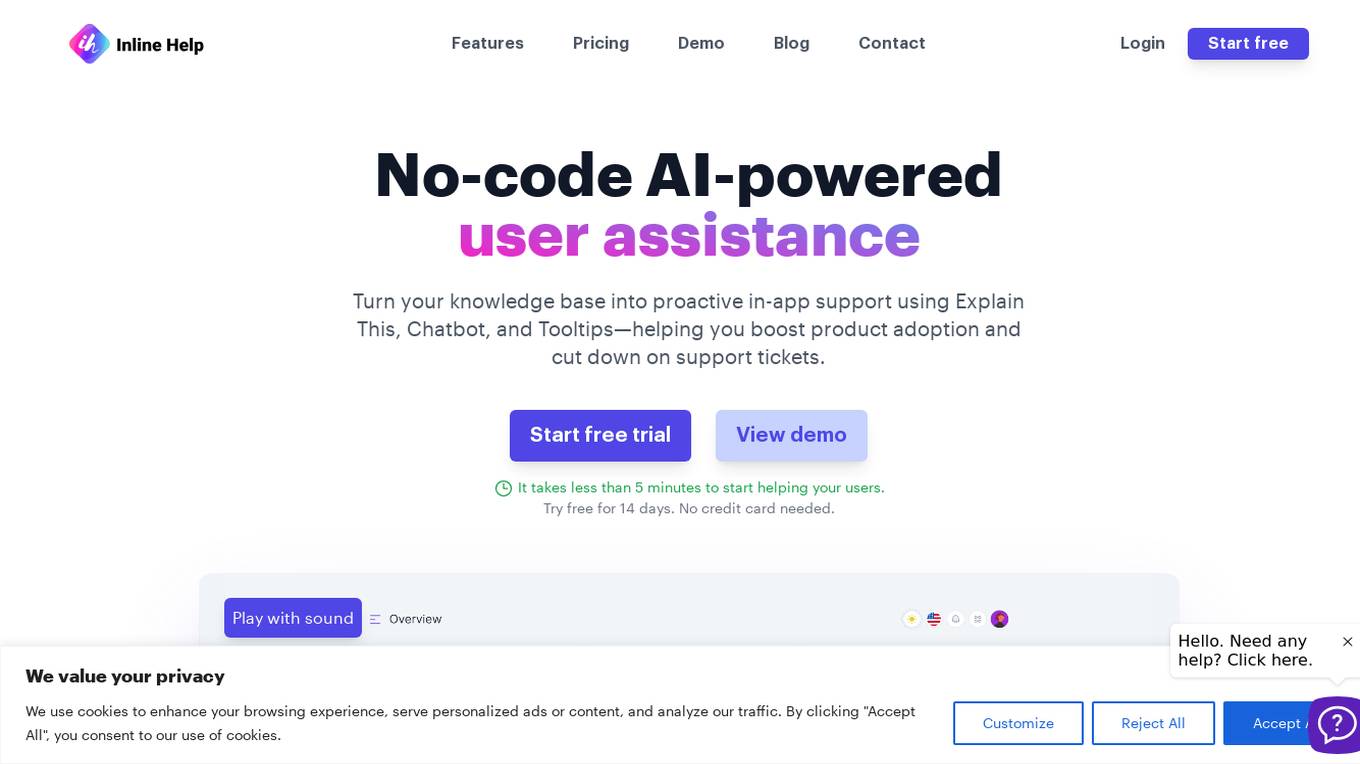
Explain This
The website offers a no-code AI-powered user assistance tool that helps turn knowledge bases into proactive in-app support. It features Explain This for in-app contextual mastery, Chatbot for real-time intelligent responses, Tooltips for effortless interaction, Widget for a centralized help hub, Knowledge Base for context-based empowerment, and Ticket Form for hassle-free issue reporting. The tool supports seven languages and aims to boost product adoption while reducing support tickets.
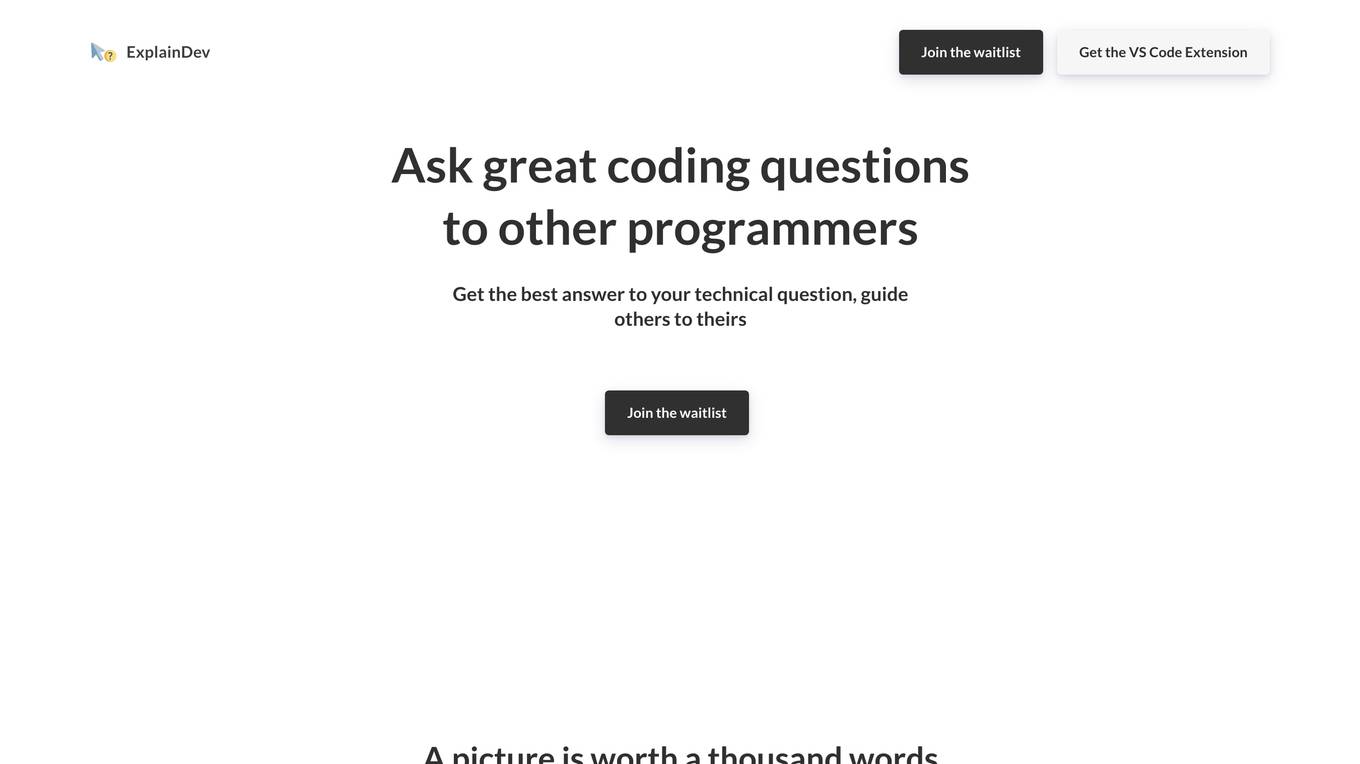
ExplainDev
ExplainDev is a platform that allows users to ask and answer technical coding questions. It uses computer vision to retrieve technical context from images or videos. The platform is designed to help developers get the best answers to their technical questions and guide others to theirs.
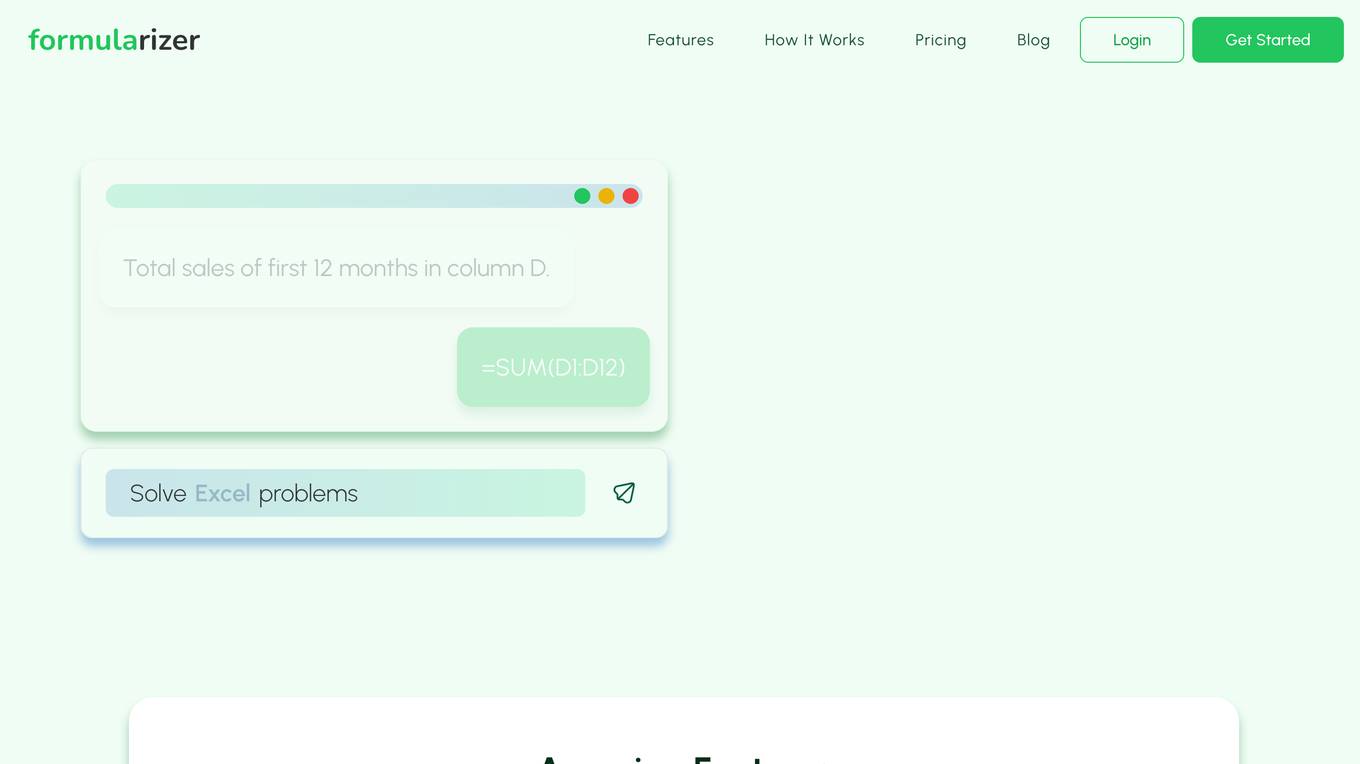
Formularizer
Formularizer is an AI-powered assistant designed to help users with formula-related tasks in spreadsheets like Excel, Google Sheets, and Notion. It provides step-by-step guidance, formula generation, and explanations to simplify complex formula creation and problem-solving. With support for regular expressions, Excel VBA, and Google Apps Script, Formularizer aims to enhance productivity and make data manipulation more accessible.
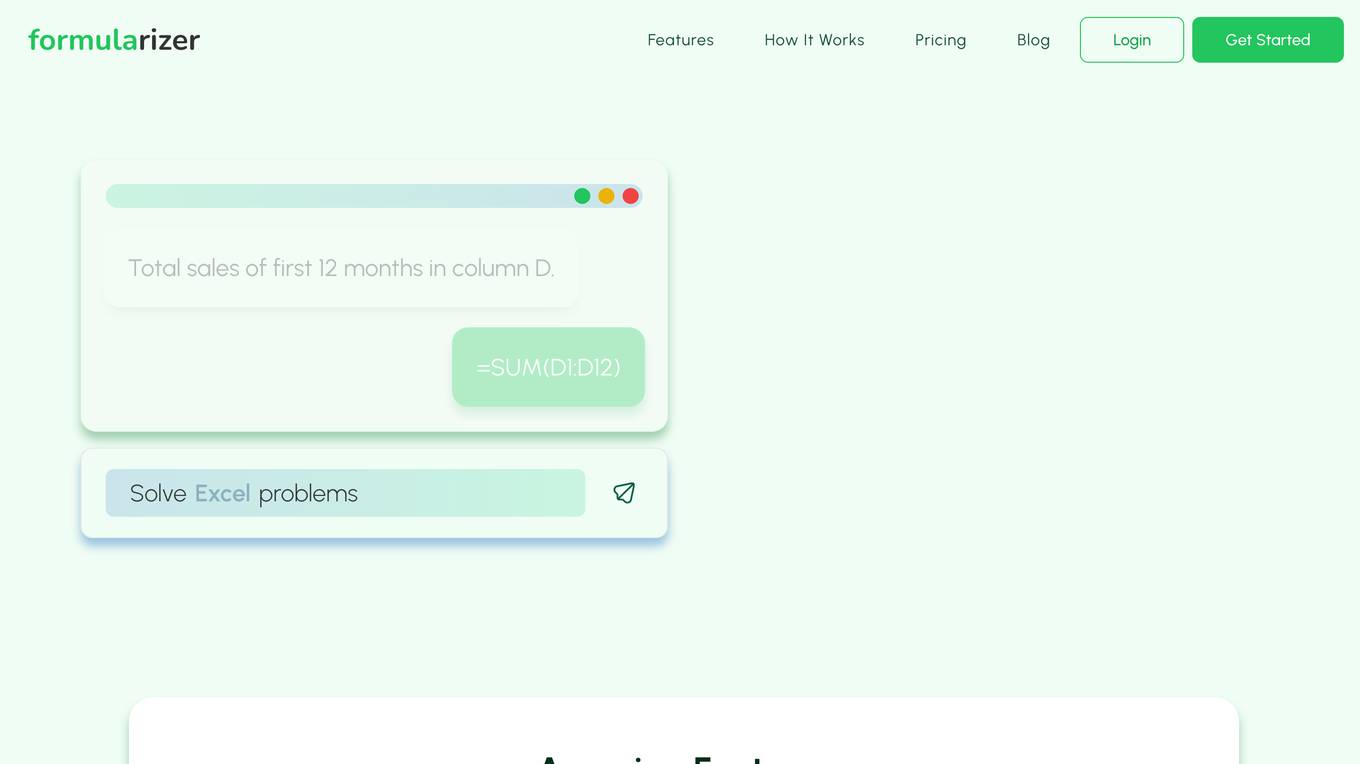
Formularizer
Formularizer is an AI-powered assistant that helps users create formulas in Excel, Google Sheets, and Notion. It supports a variety of formula types, including Excel, Google Apps Script, and regular expressions. Formularizer can generate formulas from natural language instructions, explain how formulas work, and even help users debug their formulas. It is designed to be user-friendly and accessible to everyone, regardless of their level of expertise.

Whybug
Whybug is an AI tool designed to help developers debug their code by providing explanations for errors. By utilizing a large language model trained on data from StackExchange and other sources, Whybug can predict the causes of errors and suggest fixes. Users can simply paste an error message and receive detailed explanations on how to resolve the issue. The tool aims to streamline the debugging process and improve code quality.
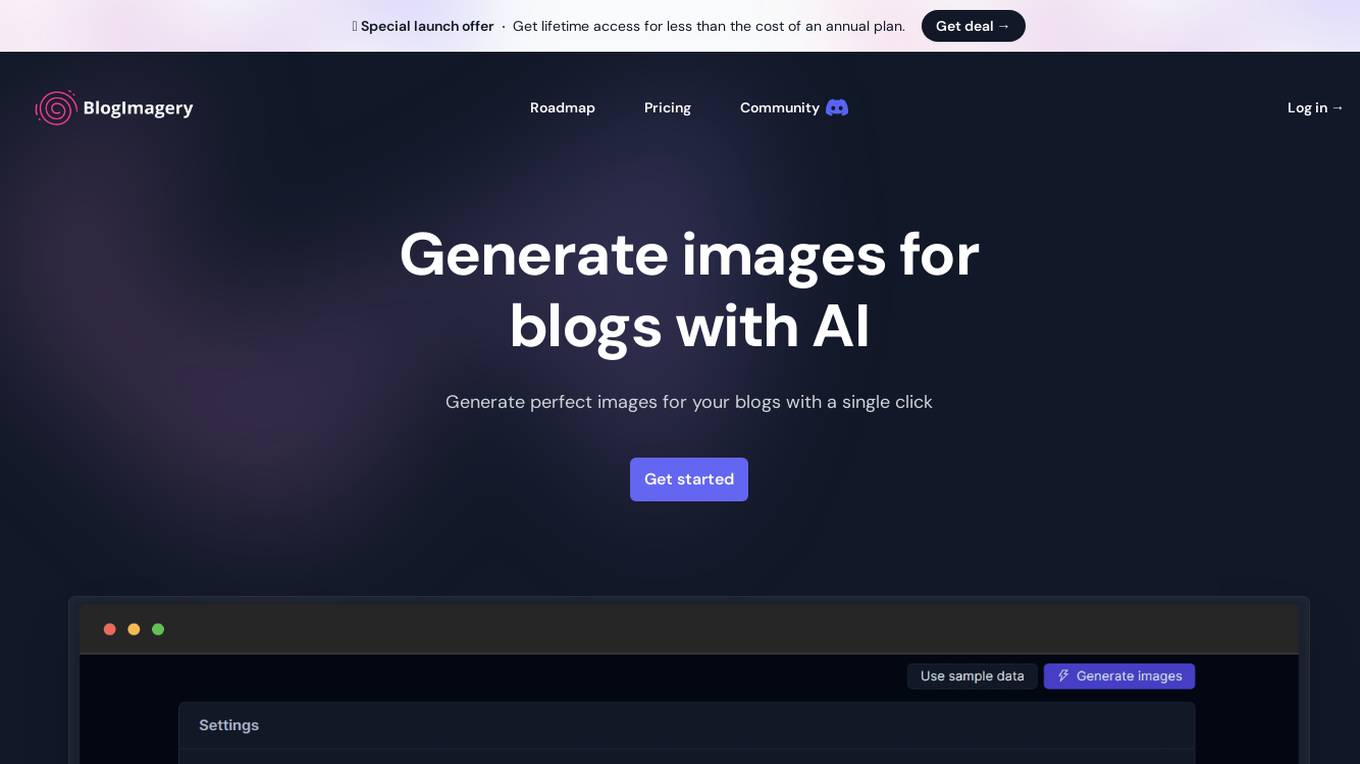
BlogImagery
BlogImagery is an AI-powered tool that helps you generate unique and visually appealing images for your blog posts. With just a single click, you can create images that are perfectly tailored to your content and style. BlogImagery offers a variety of art styles to choose from, so you can find the perfect look for your blog. You can also use BlogImagery to transform boring walls of text into beautiful articles. Original images have been shown to perform 40% better than stock photos, so using BlogImagery can help you improve your blog's engagement and traffic.
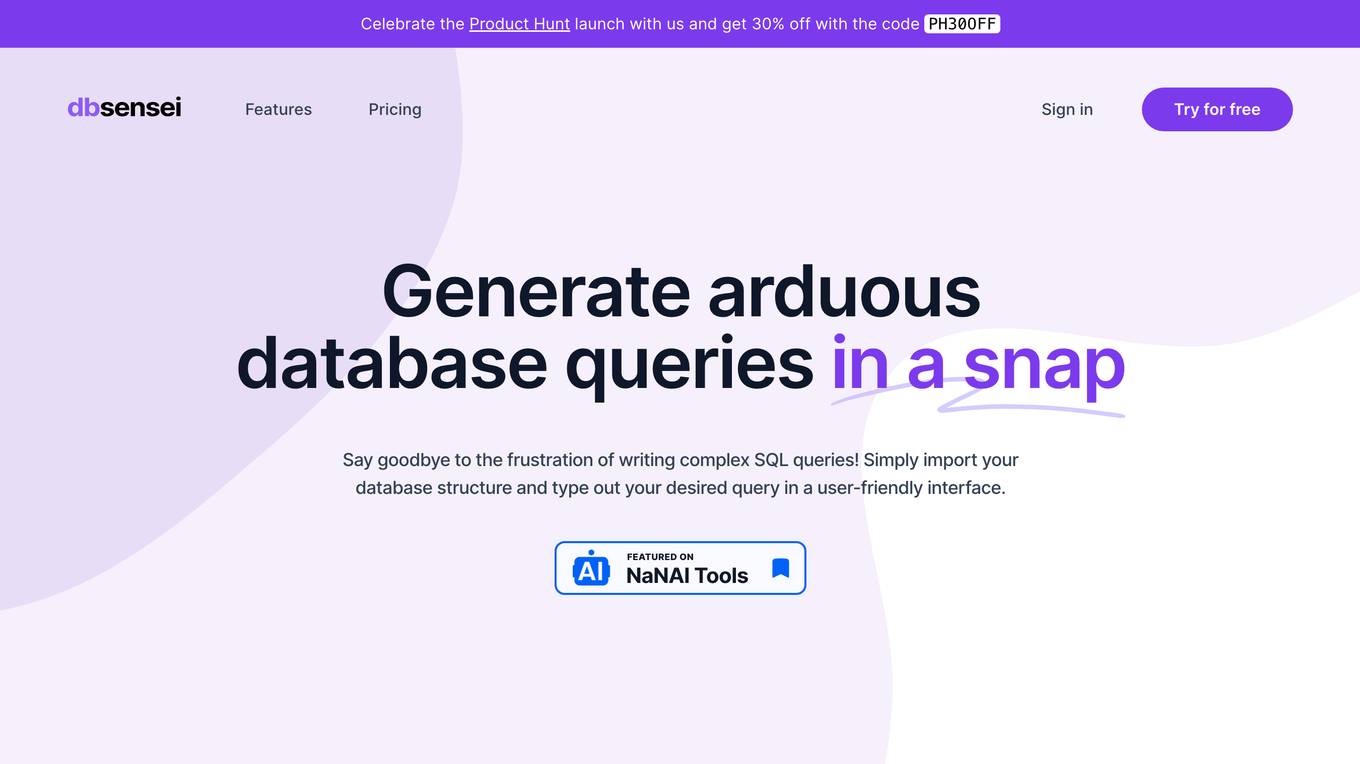
DB Sensei
DB Sensei is an AI-powered SQL tool that helps developers generate, fix, explain, and format SQL queries with ease. It features a user-friendly interface, AI-driven query generation, query fixing, query explaining, and query formatting. DB Sensei is designed for developers, database administrators, and students who want to get faster results and improve their database skills.
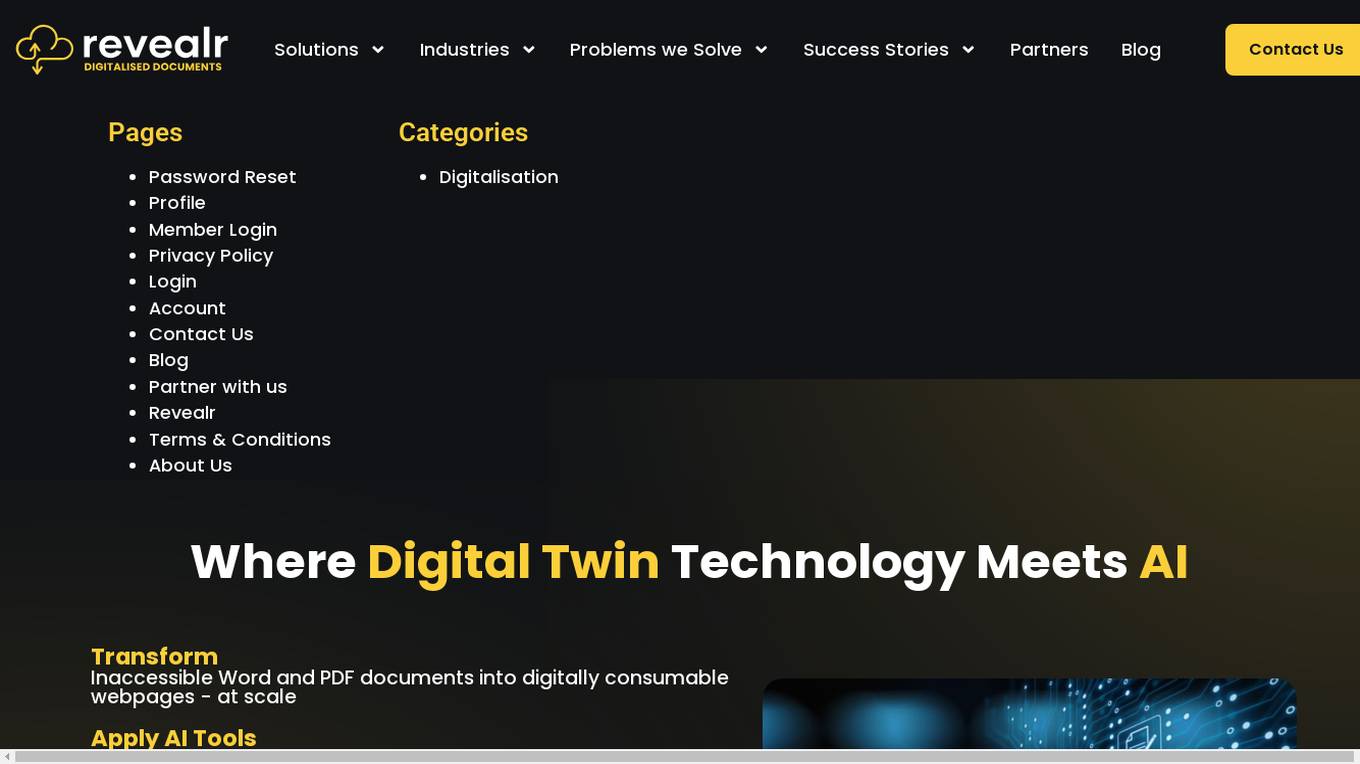
Revealr
Revealr is an AI-powered application that focuses on digitalization for business documents. It offers solutions for transforming, complying, and managing various types of documents using AI technology. Revealr helps organizations unlock knowledge from Word and PDF documents, leverage SharePoint investments, and apply AI in a trusted ecosystem to analyze and explain content. The application aims to deliver real-time access to policies and procedures, reduce costs and risks associated with managing brand portfolios, and empower remote workforces with secure information access. Revealr caters to industries such as financial services, government, insurance, and legal sectors, providing digital solutions to improve compliance, reduce risk, and enhance customer experience.
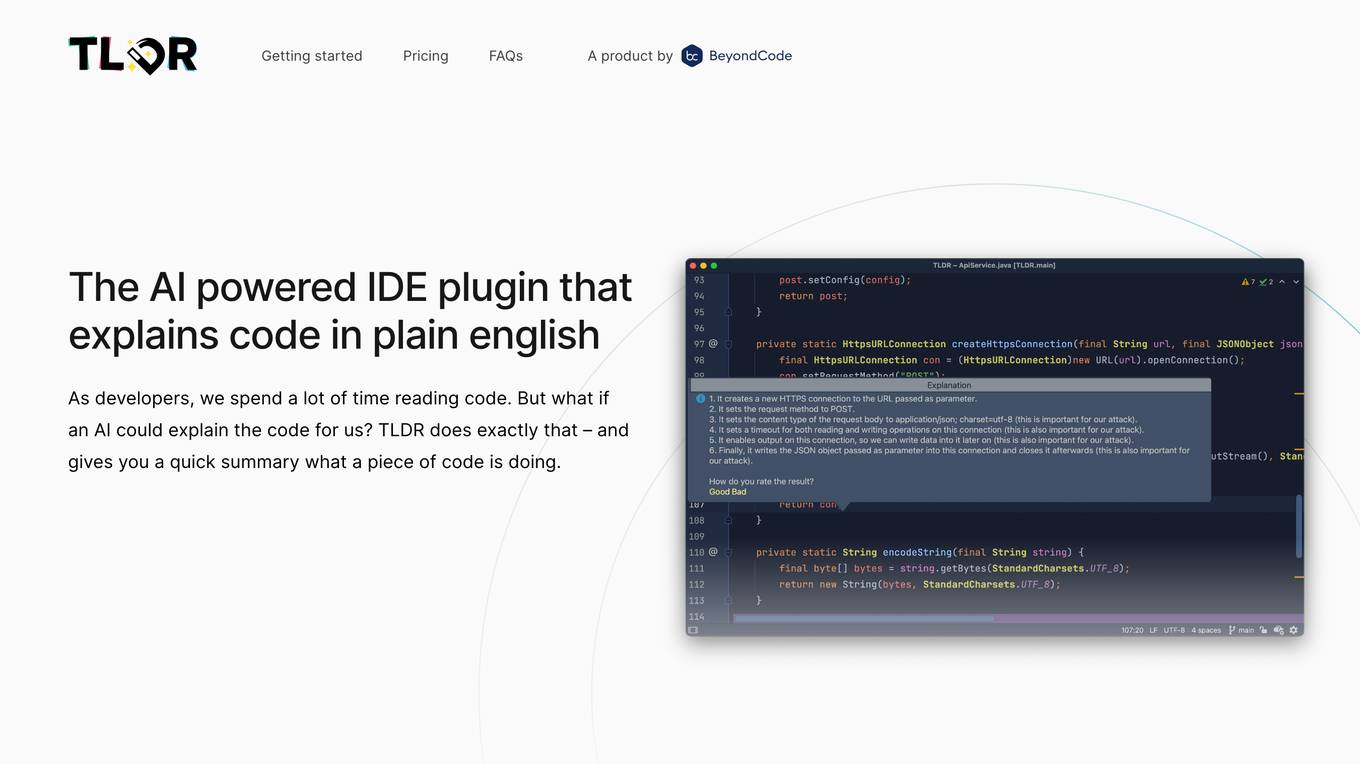
TLDR
TLDR is an AI-powered IDE plugin that explains code in plain English. It helps developers understand code by providing quick summaries of what a piece of code is doing. The tool supports almost all programming languages and offers a free version for users to try before purchasing. TLDR aims to simplify the understanding of complex code structures and save developers time in comprehending codebases.
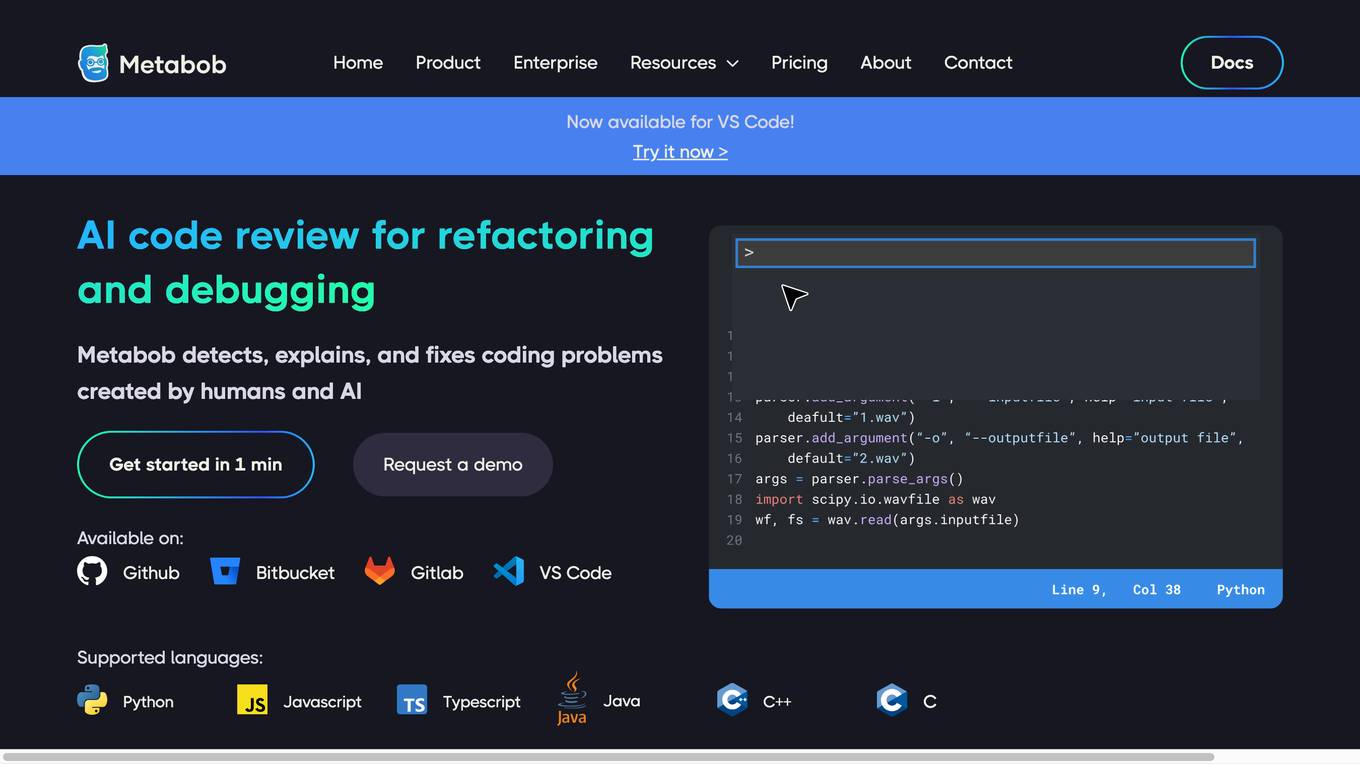
Metabob
Metabob is an AI-powered code review tool that helps developers detect, explain, and fix coding problems. It utilizes proprietary graph neural networks to detect problems and LLMs to explain and resolve them, combining the best of both worlds. Metabob's AI is trained on millions of bug fixes performed by experienced developers, enabling it to detect complex problems that span across codebases and automatically generate fixes for them. It integrates with popular code hosting platforms such as GitHub, Bitbucket, Gitlab, and VS Code, and supports various programming languages including Python, Javascript, Typescript, Java, C++, and C.
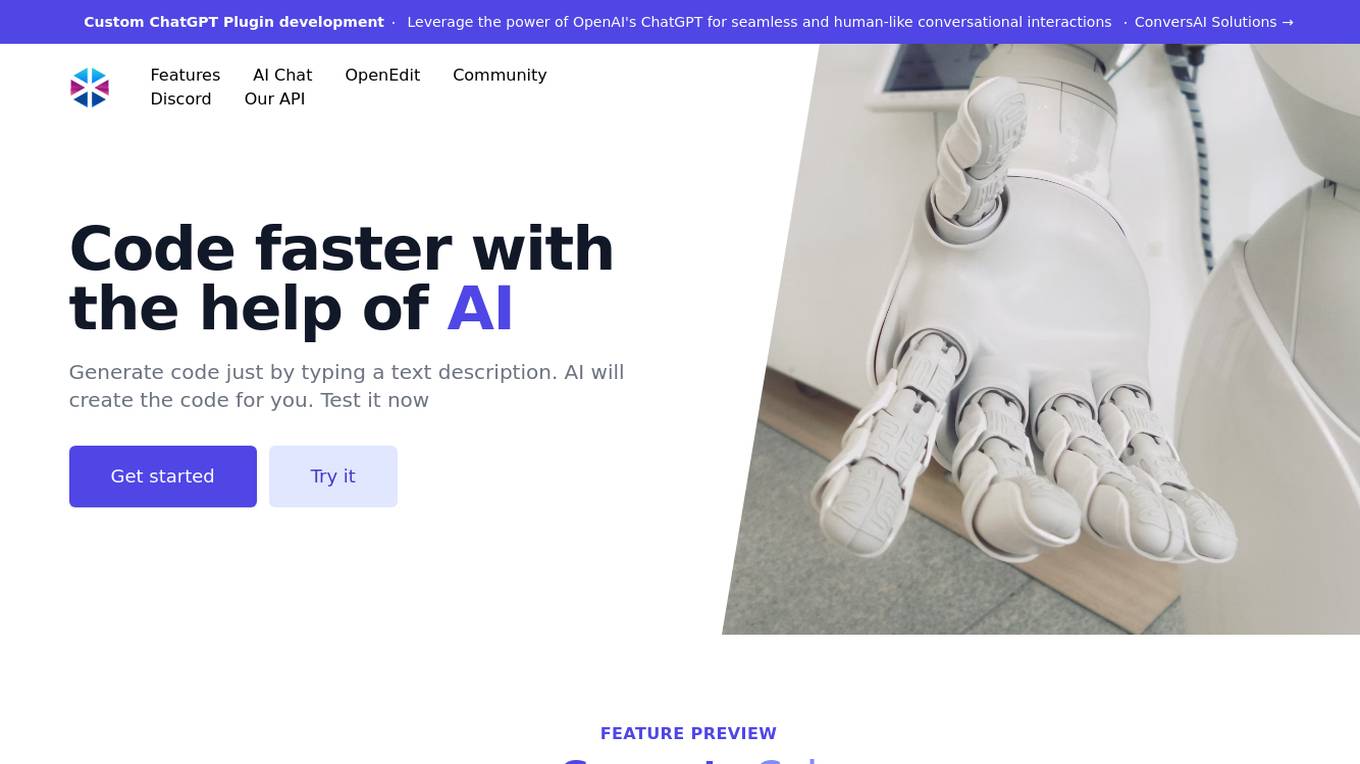
Programming Helper
Programming Helper is a tool that helps you code faster with the help of AI. It can generate code, test code, and explain code. It also has a wide range of other features, such as a function from description, text description to SQL command, and code to explanation. Programming Helper is a valuable tool for any programmer, regardless of their skill level.
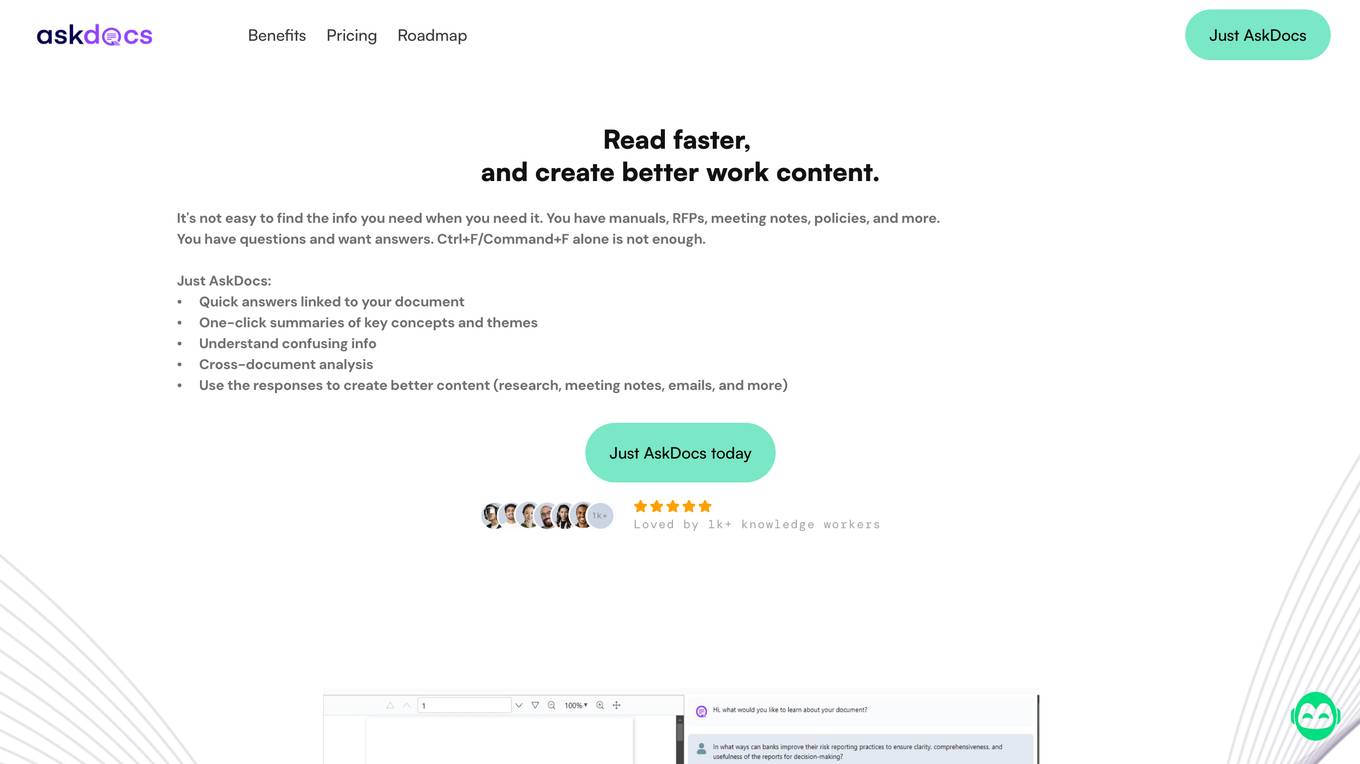
AskDocs
AskDocs is an AI-powered document assistant designed to help users read faster and create better work content. It offers cross-document analysis, quick answers linked to documents, one-click summaries of key concepts, and the ability to understand confusing information. With a focus on enhancing productivity, AskDocs is trusted by students, knowledge workers, and small businesses to streamline research, meeting notes, emails, and more. The tool supports various document types and provides instant answers directly linked to sources within the uploaded documents.
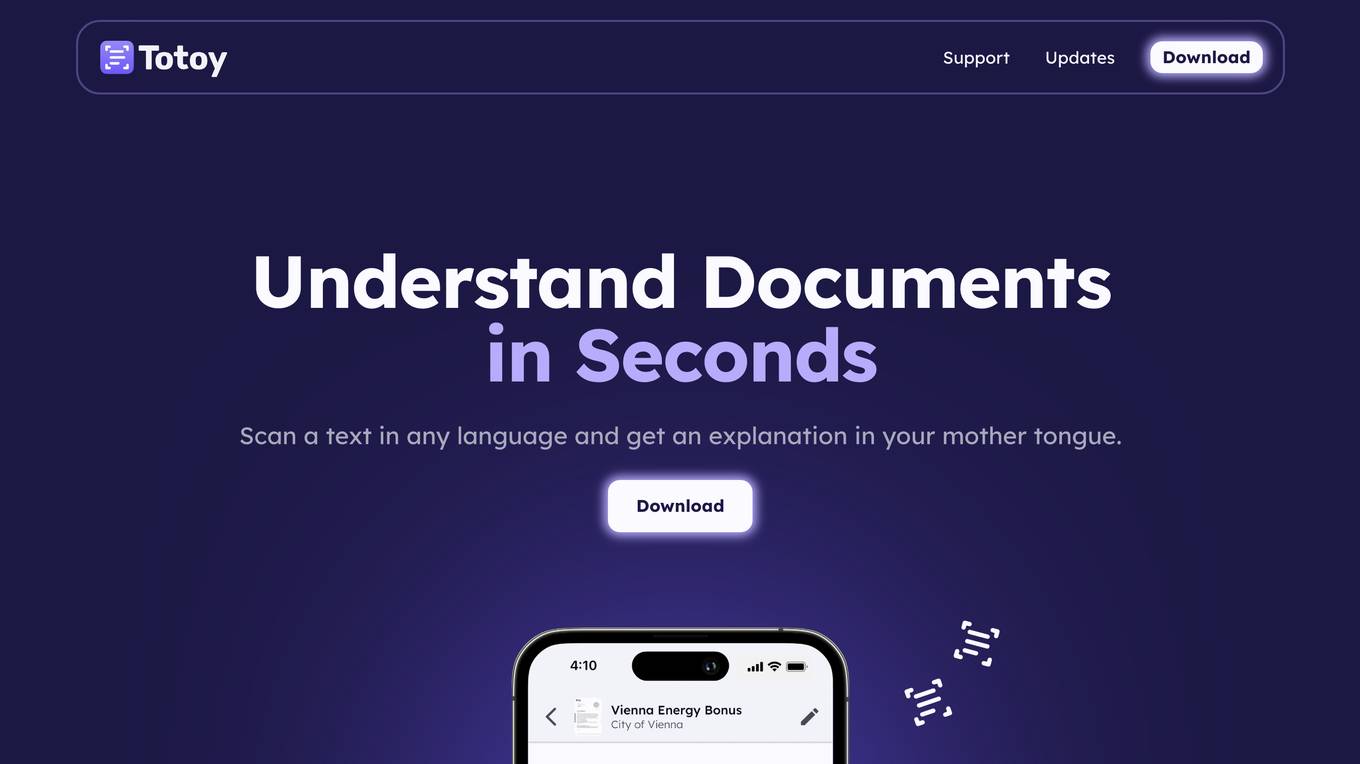
Totoy
Totoy is a Document AI tool that redefines the way documents are processed. Its API allows users to explain, classify, and create knowledge bases from documents without the need for training. The tool supports 19 languages and works with plain text, images, and PDFs. Totoy is ideal for automating workflows, complying with accessibility laws, and creating custom AI assistants for employees or customers.
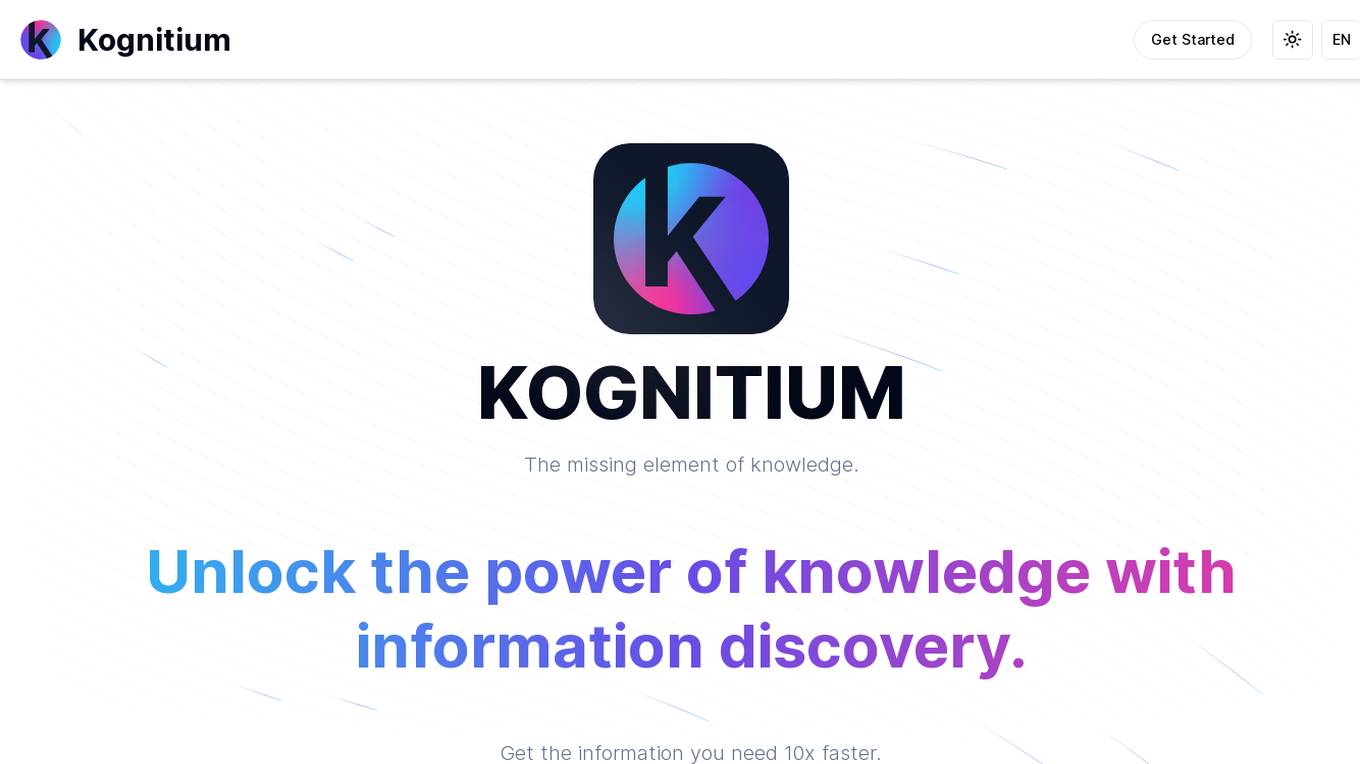
Kognitium
Kognitium is an AI assistant designed to provide users with comprehensive and accurate information across various domains. It is equipped with advanced capabilities that enable it to understand the intent behind user inquiries and deliver tailored responses. Kognitium's knowledge base spans a wide range of subjects, including current events, science, history, philosophy, and linguistics. It is designed to be user-friendly and accessible, making it a valuable tool for students, professionals, and anyone seeking to expand their knowledge. Kognitium is committed to providing reliable and actionable insights, empowering users to make informed decisions and enhance their understanding of the world around them.
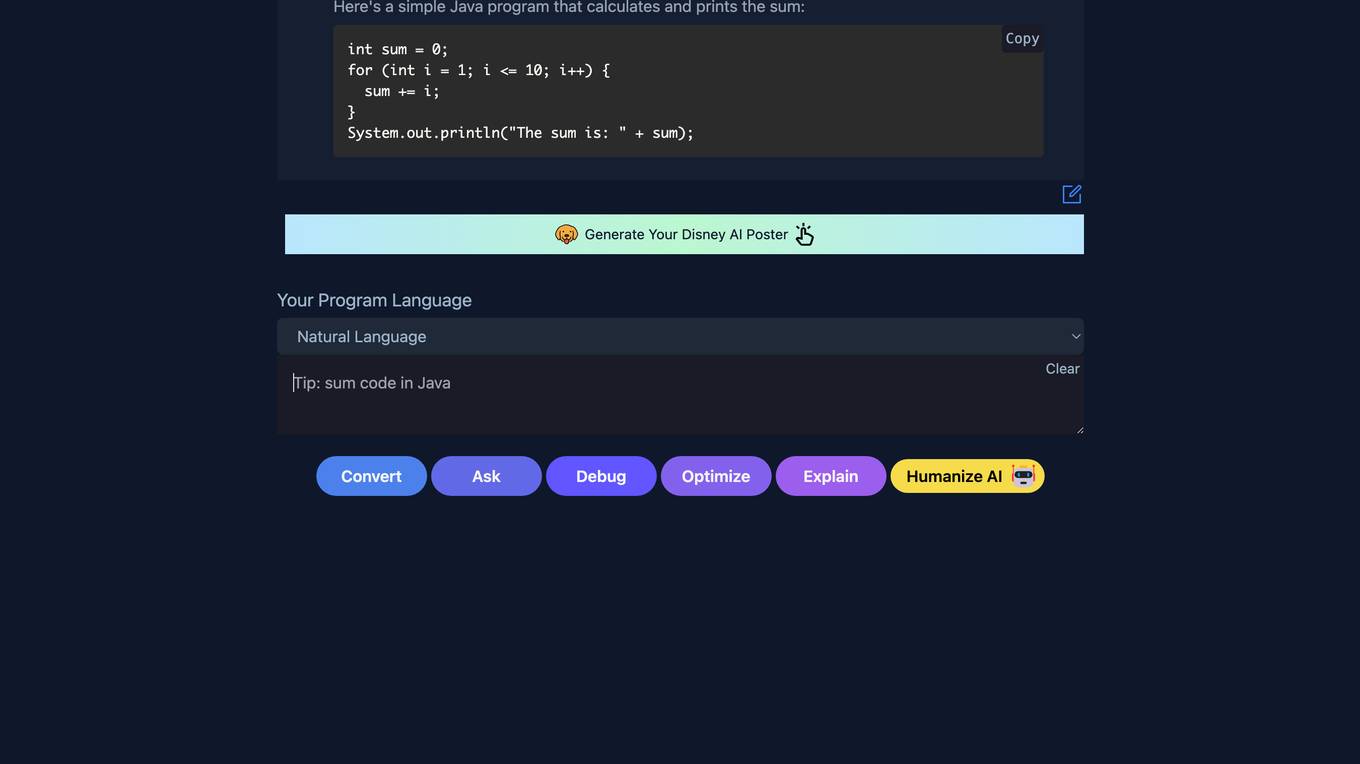
AICodeConvert
AICodeConvert is an AI tool that simplifies coding by integrating AI Code Translator and AI Code Generator. It efficiently translates existing code into different programming languages and automatically generates high-quality code snippets and templates. This powerful combination makes AICodeConvert an indispensable tool for developers, providing a convenient and intelligent coding experience.
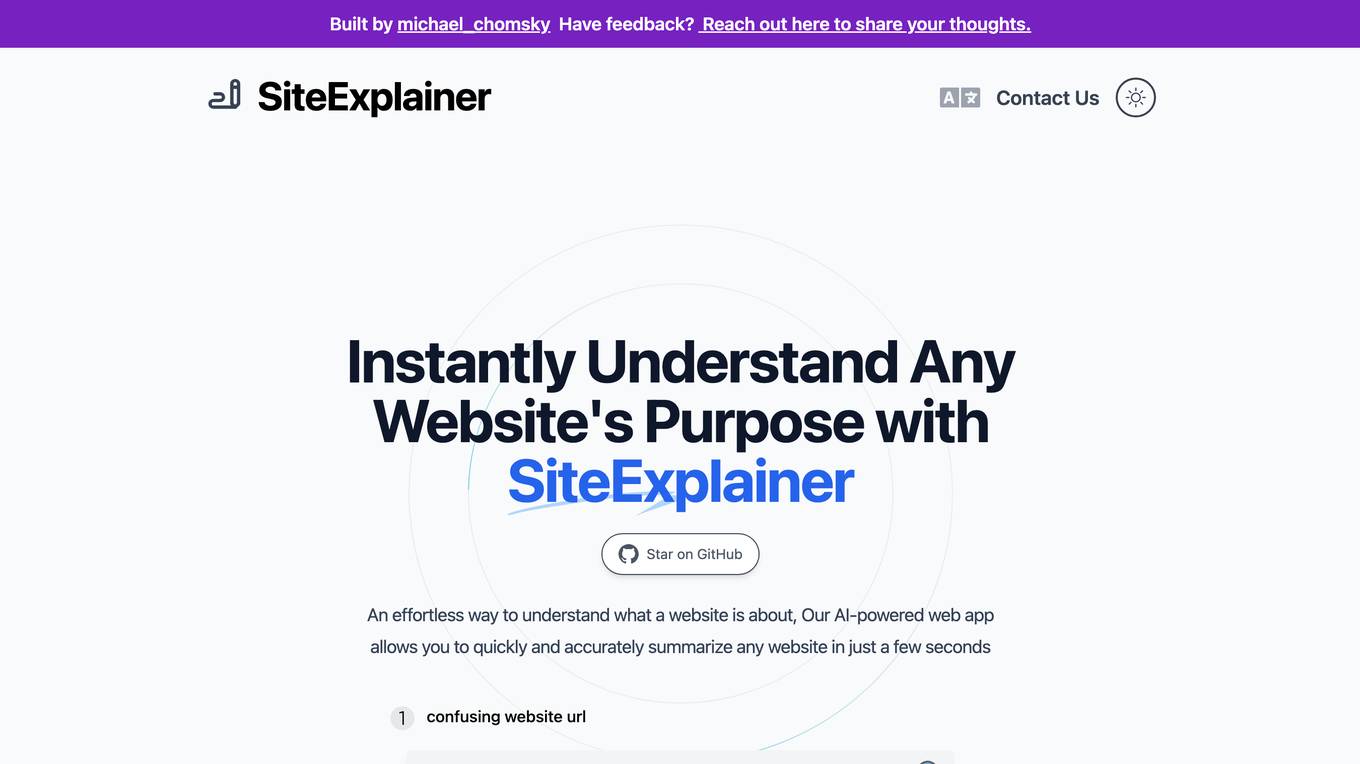
SiteExplainer
SiteExplainer is an AI-powered web application that helps users understand the purpose of any website quickly and accurately. It uses advanced artificial intelligence and machine learning technology to analyze the content of a website and present a summary of the main ideas and key points. SiteExplainer simplifies the language used on landing pages and eliminates corporate jargon to help visitors better understand a website's content.
0 - Open Source AI Tools
20 - OpenAI Gpts

Coconspirator
I generate wild, yet believable conspiracies using historical events in a twisted context.
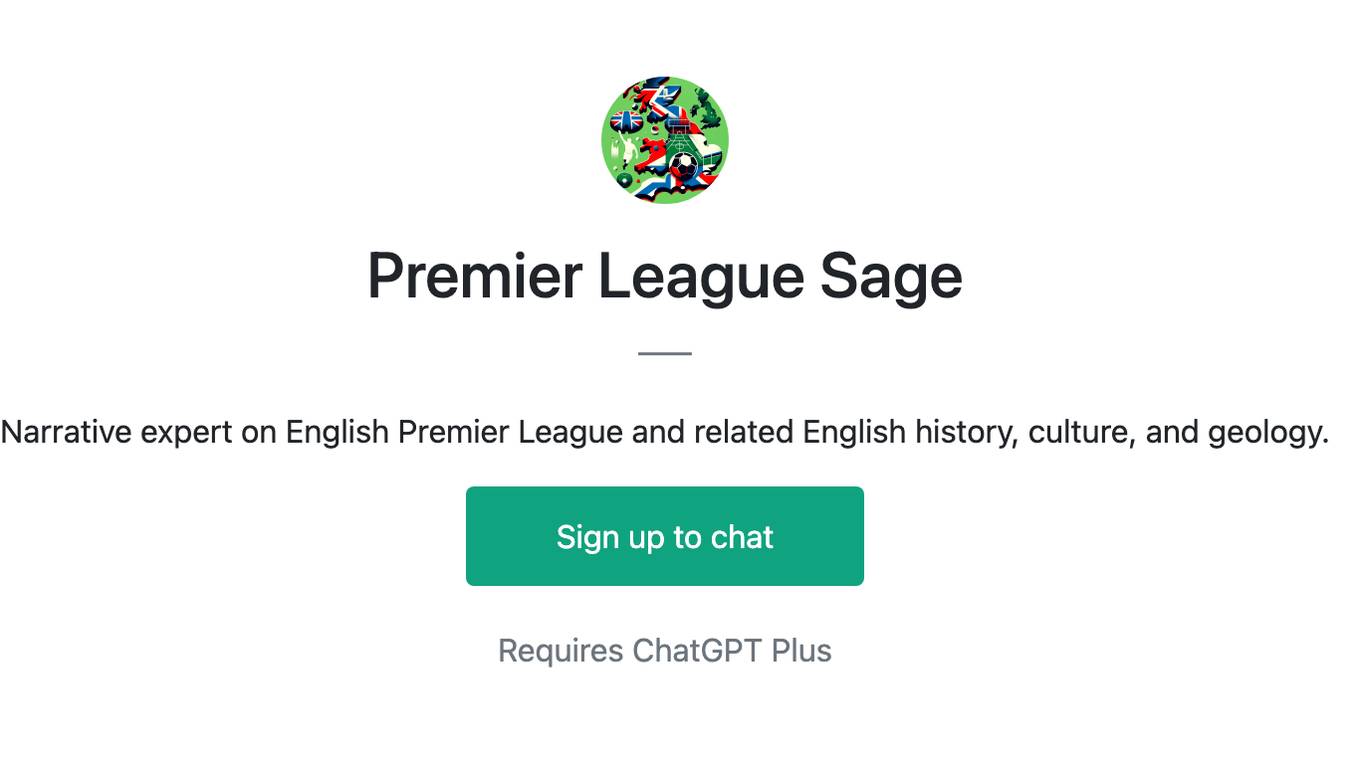
Premier League Sage
Narrative expert on English Premier League and related English history, culture, and geology.
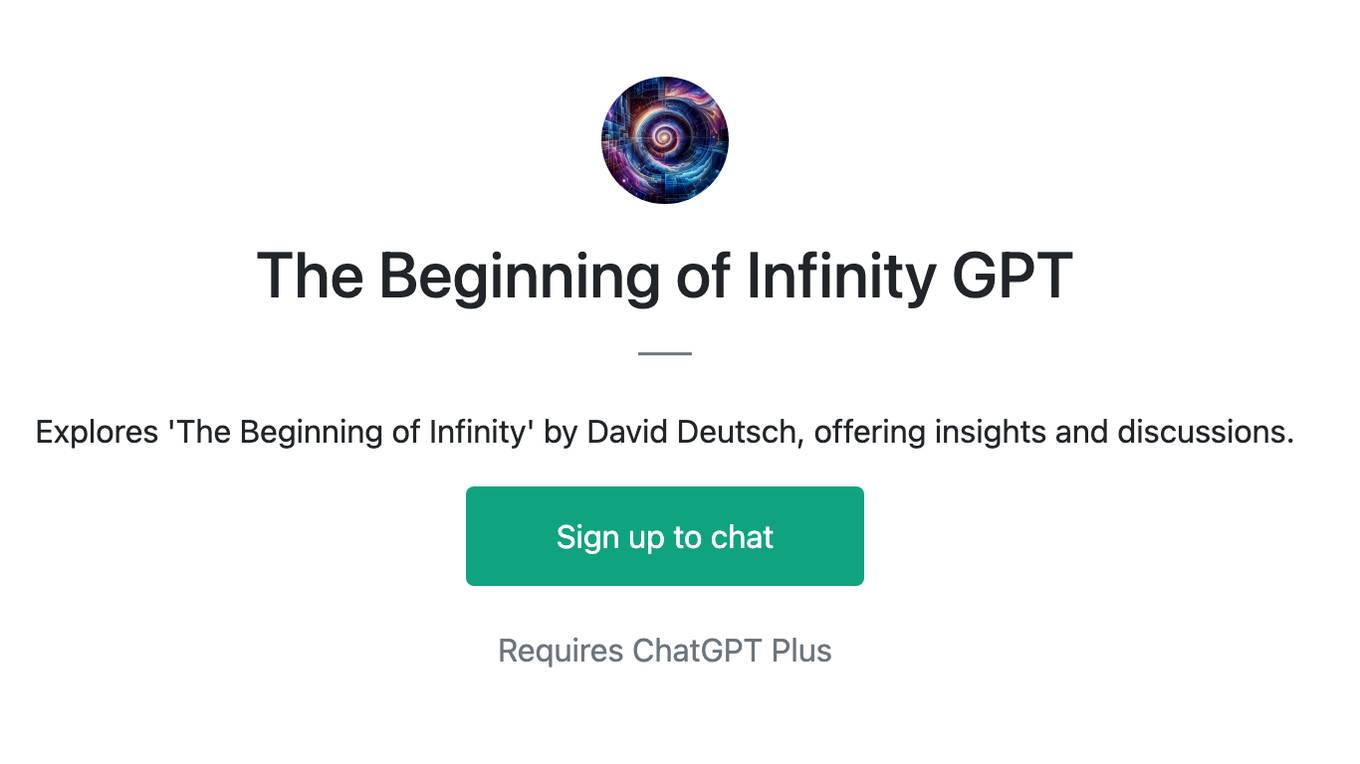
The Beginning of Infinity GPT
Explores 'The Beginning of Infinity' by David Deutsch, offering insights and discussions.
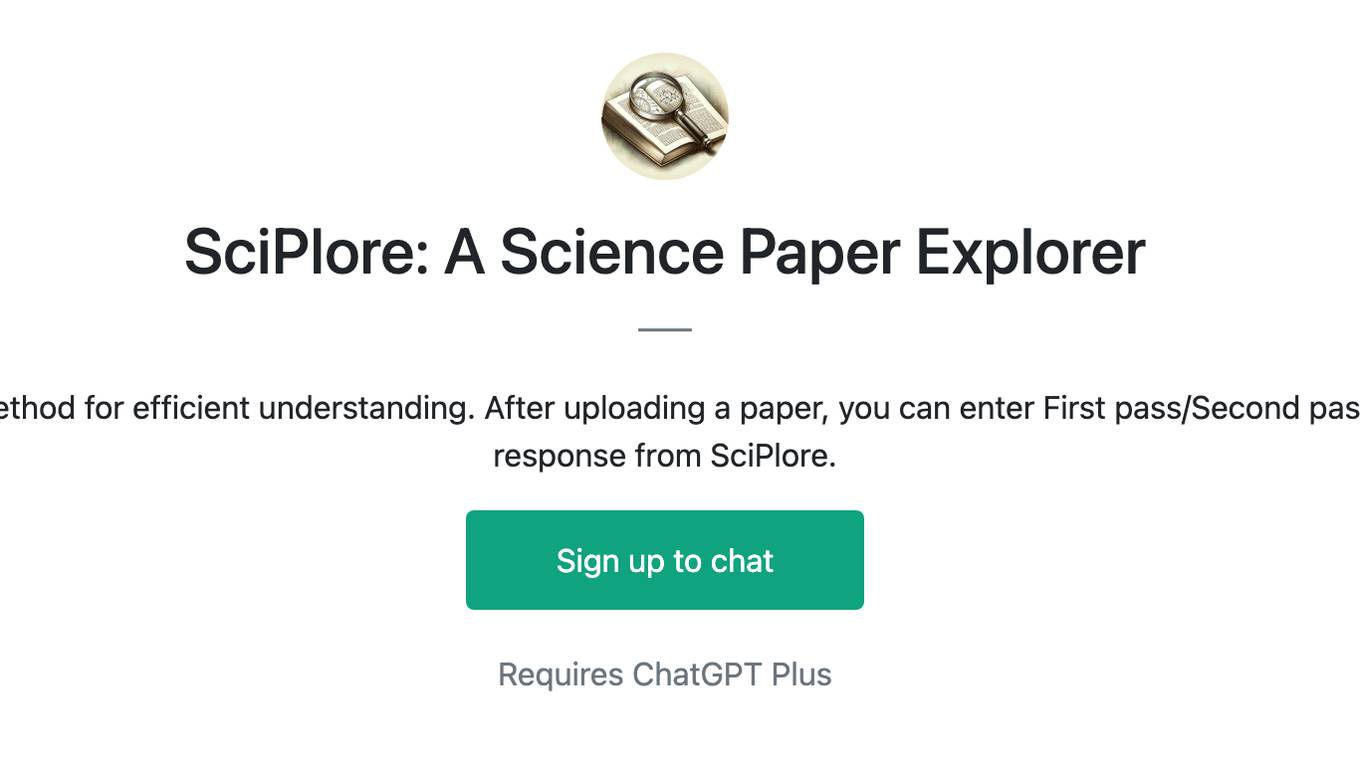
SciPlore: A Science Paper Explorer
Explain scientific papers using the 3-pass method for efficient understanding. After uploading a paper, you can enter First pass/Second pass /Third pass / Q&A to get different level of response from SciPlore.
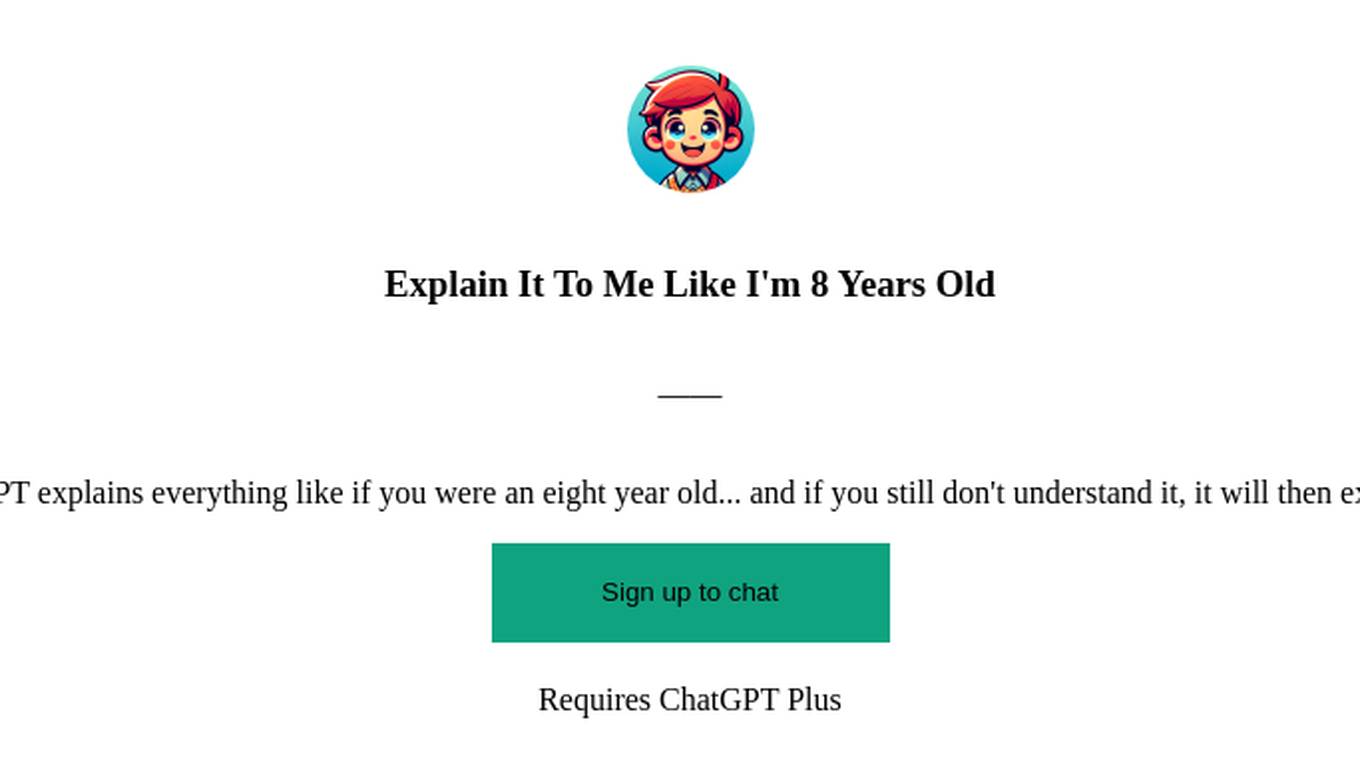
Explain It To Me Like I'm 8 Years Old
Inspired by The Office, This ChatGPT explains everything like if you were an eight year old... and if you still don't understand it, it will then explain it like you were a five year old.
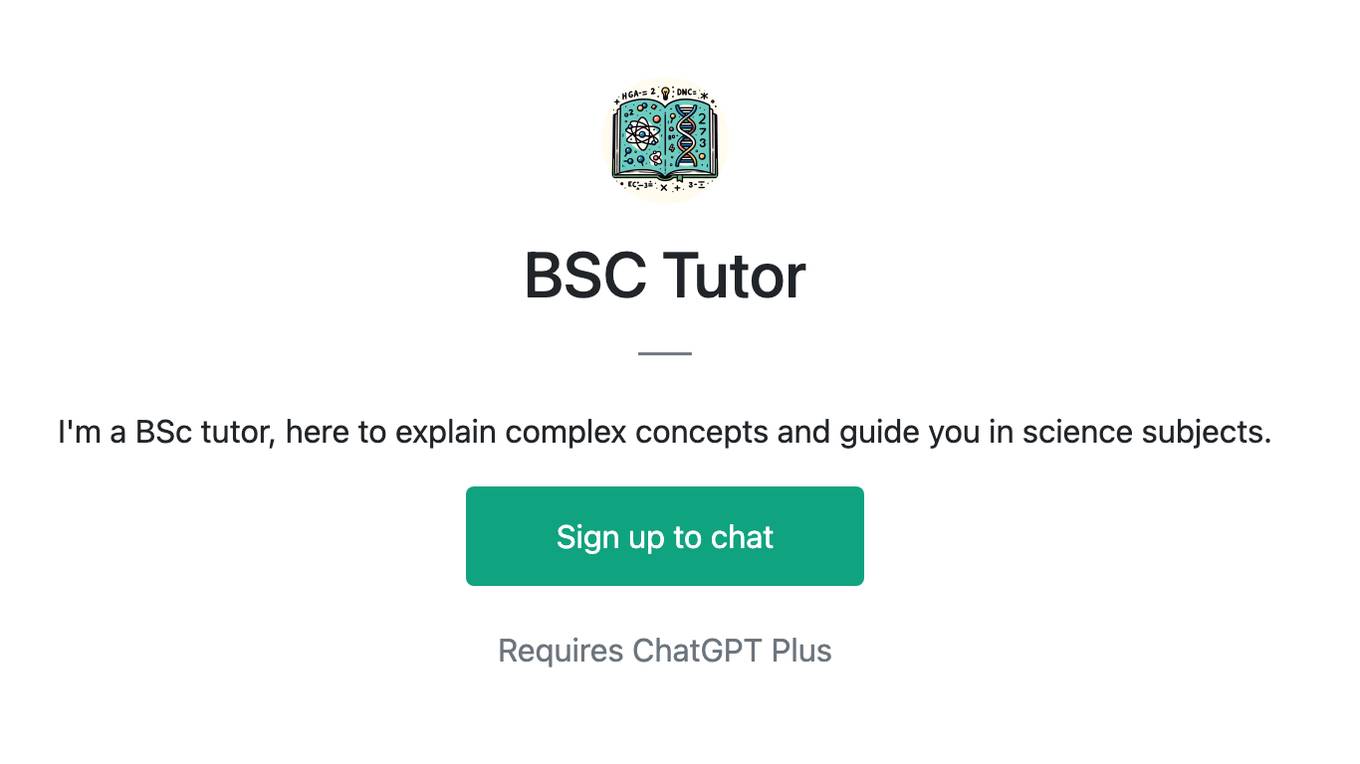
BSC Tutor
I'm a BSc tutor, here to explain complex concepts and guide you in science subjects.
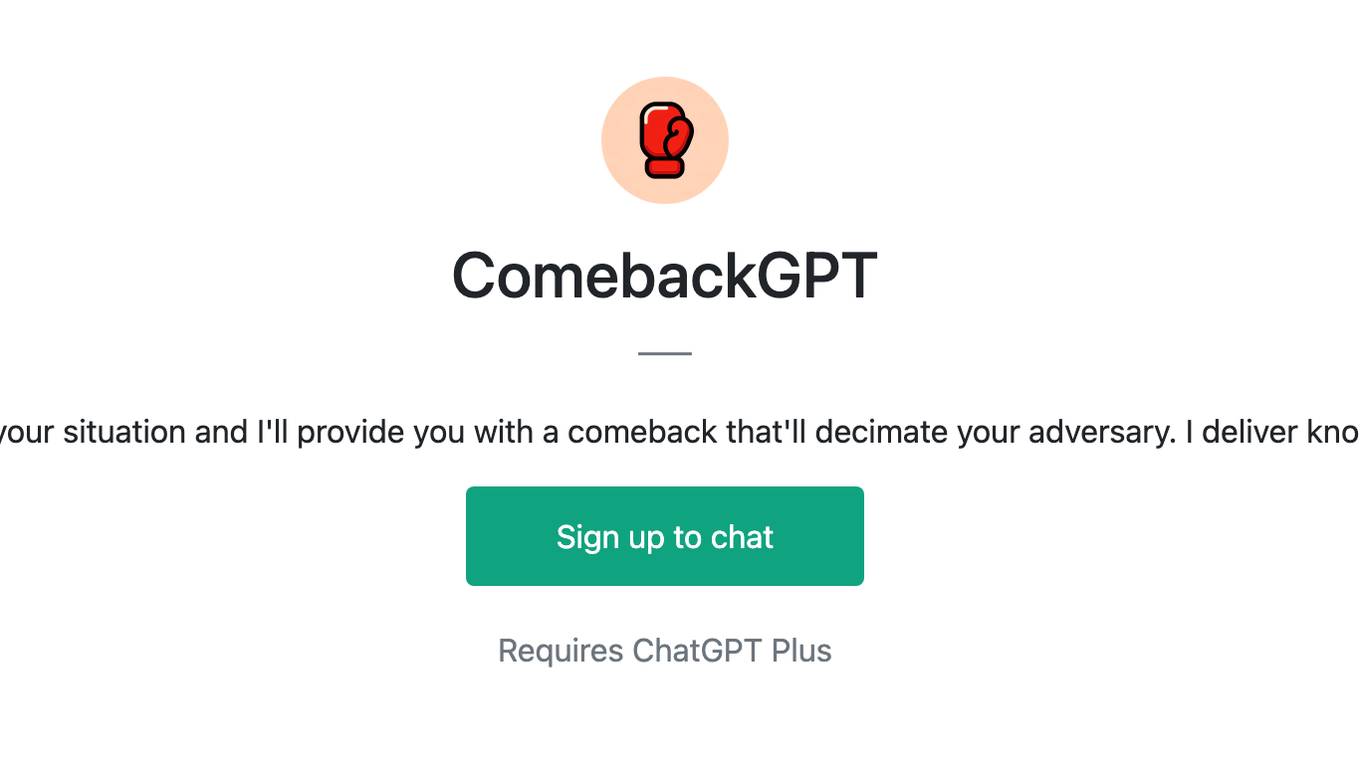
ComebackGPT
Cornered by a taunt? Just explain your situation and I'll provide you with a comeback that'll decimate your adversary. I deliver knock-out punches. With my mouth.
Fluids
I'm a fluid mechanics tutor, ready to explain concepts and guide you through problems!
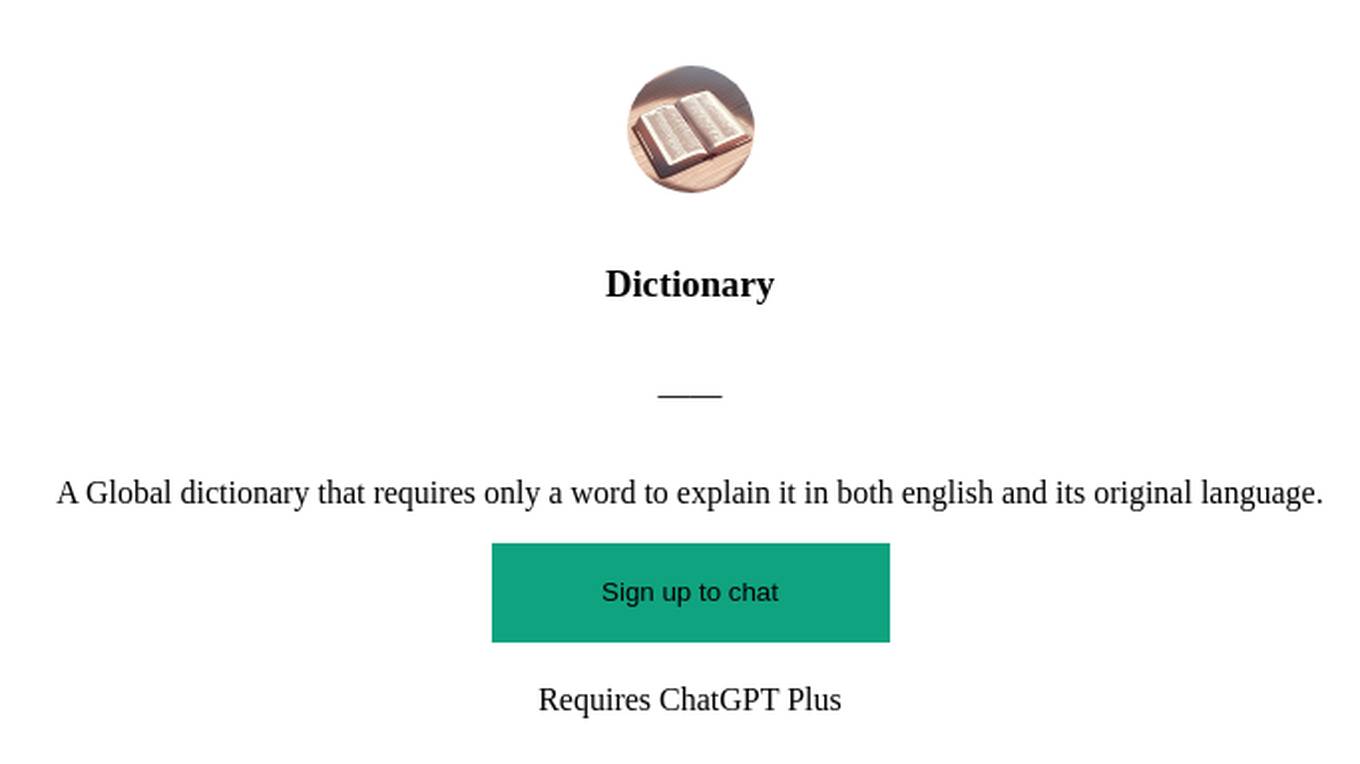
Dictionary
A Global dictionary that requires only a word to explain it in both english and its original language.
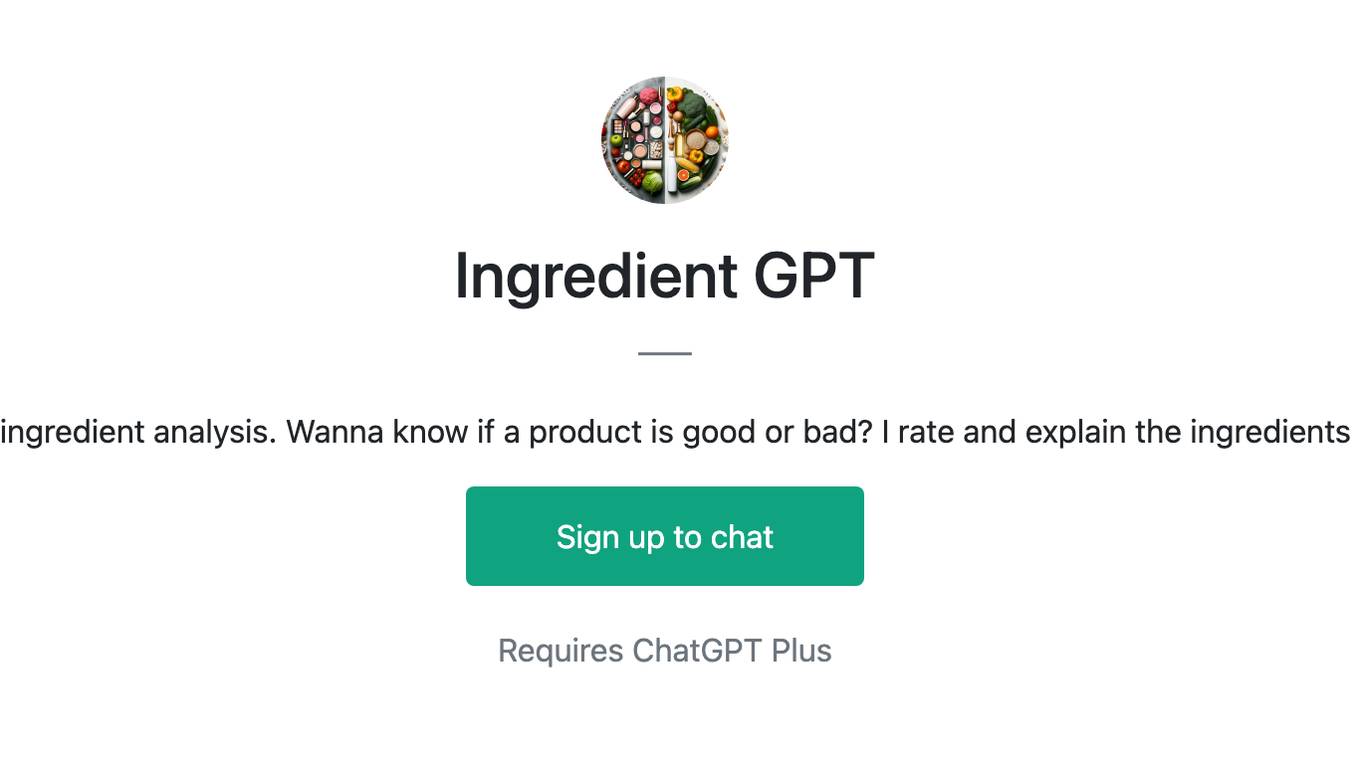
Ingredient GPT
Expert in product ingredient analysis. Wanna know if a product is good or bad? I rate and explain the ingredients in simple terms.
